Rechercher dans ce blog
Wednesday, October 31, 2018
Official: US Watching for Foreign Election Attacks
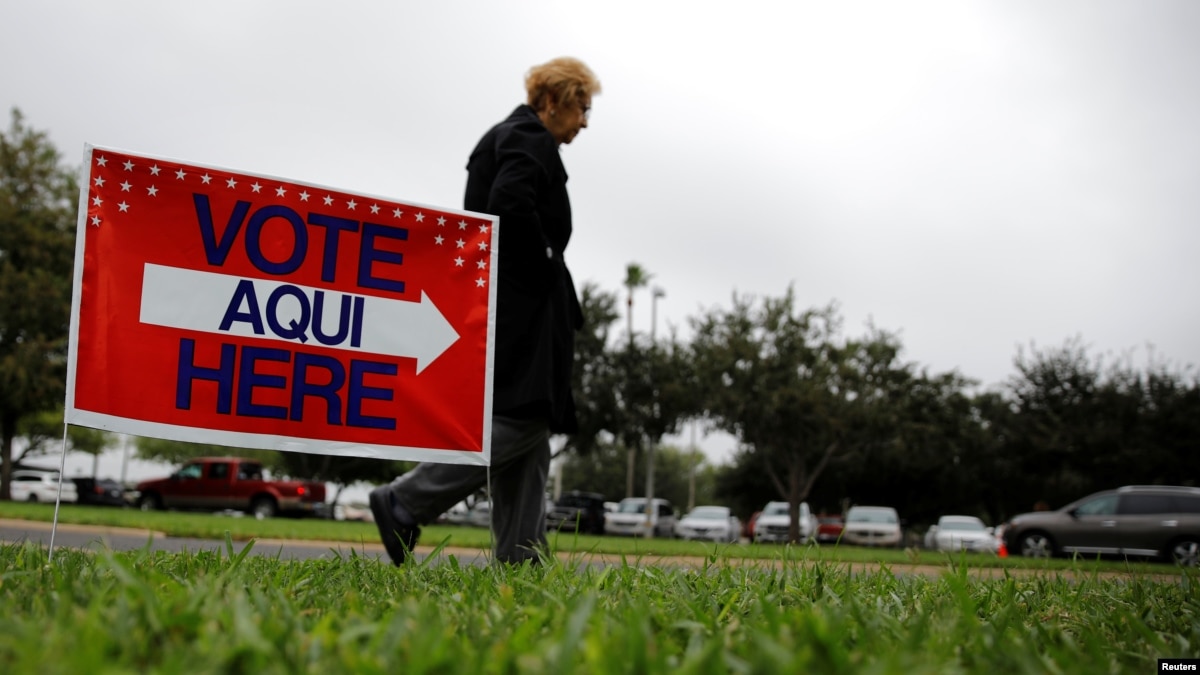
The U.S. government is monitoring for possible foreign interference in Tuesday’s congressional elections and is prepared to sanction any company or individual involved in such activity, a senior intelligence official said Wednesday.
“We remain concerned about interference coming from Russia, China and Iran,” the official said in a phone briefing with reporters to discuss federal government plans to help secure the Nov. 6 elections.
The official provided no details about specific threats of foreign influence during the call, but said the intelligence community is prepared to identify individuals who meddle in the voting process.
U.S. intelligence agencies have concluded that Russia meddled in the 2016 presidential election in a bid to bolster support for Donald Trump and have more recently accused Moscow of seeking to influence the outcome of next week’s congressional elections. Russia has denied the allegations.
While speaking at the United Nations last month, Trump accused China of meddling in the election. He did not provide evidence to support his claim, and Beijing has denied the charges.
Trump signed an executive order in September allowing the government to sanction any individual or company found to be interfering in the election through either hacking or disinformation efforts.
The Federal Bureau of Investigation, Justice Department, Department of Homeland Security and intelligence will contribute to efforts for thwarting digital attacks on the election, officials said on the call. The White House will coordinate with these agencies through its National Security Council.
The Justice Department is also planning to launch an “election interference command post” on Election Day to help the FBI rapidly communicate with its different field offices around the country, a second senior administration official said.
Oprah Jumps Into Contentious Georgia Race, Endorses Democrat Abrams
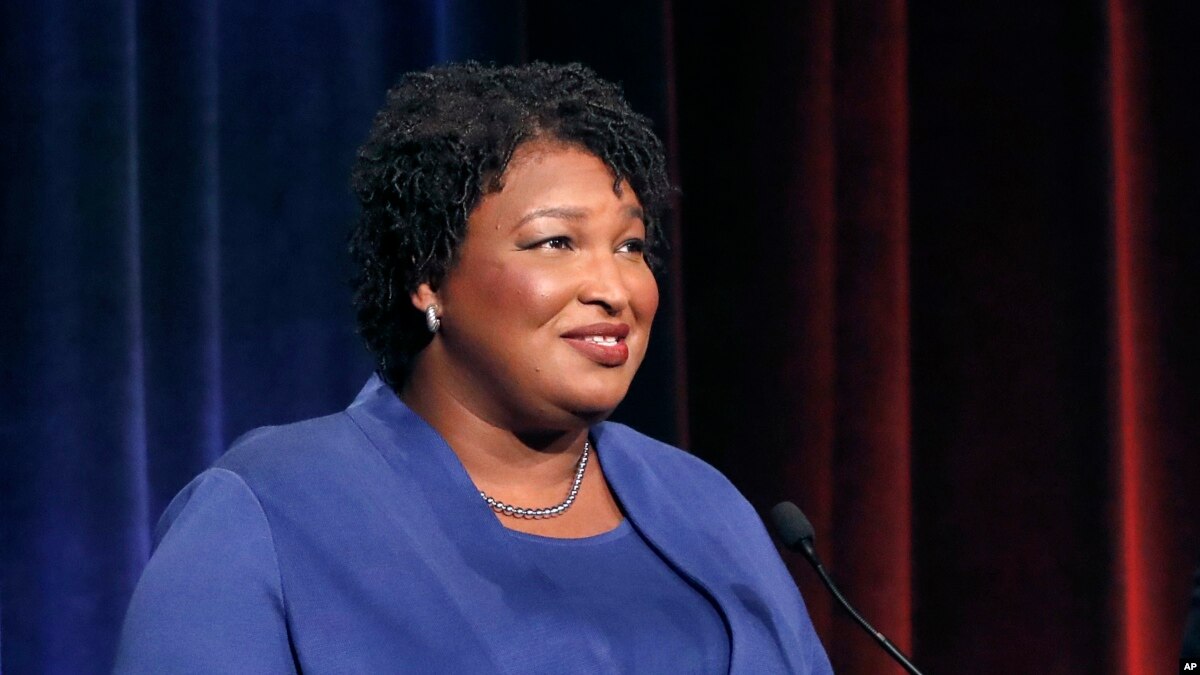
Oprah Winfrey plans to lend her star power to Georgia Democrat Stacey Abrams' quest to become the United States' first black woman governor at a couple of appearances in the state on Thursday.
After a brief flirtation earlier this year with a run for the White House in 2020, the media mogul, who has long associated herself with Democratic Party causes, has instead thrown her influence into a race that has become a flash point for accusations of voter suppression.
Abrams' Republican rival, Brian Kemp, serves as Georgia secretary of state, a role in which he oversees state elections.
Earlier this month, a coalition of state civil rights groups sued Kemp, accusing him of trying to depress minority voter turnout to improve his chances of winning. On Monday, former U.S. President and former Georgia Governor Jimmy Carter asked Kemp to step down as secretary of state since he was running for governor.
Abrams' campaign said she would appear with Winfrey in Cobb and DeKalb counties for a discussion on "the critical value of women in leadership and what is at stake for our communities in the election."
Winfrey, 64, stole the show at January's Golden Globes awards ceremony with a speech against sexual harassment and assault. It sparked an online campaign to persuade her to run against Republican U.S. President Donald Trump in the next election cycle.
"It's not something that interests me," Winfrey told InStyle magazine in January. "I met with someone the other day who said that they would help me with a campaign. That's not for me."
Winfrey could not be reached for immediate comment on Wednesday.
Sources: US Senate Panel Probes Former Trump Aide Bannon

The U.S. Senate Intelligence Committee is pursuing a wide-ranging investigation into former White House adviser Steve Bannon's activities during the 2016 presidential campaign, three sources familiar with the inquiry told Reuters.
The committee is looking into what Bannon might know about any contacts during the campaign between Moscow and two advisers to the campaign, George Papadopoulos and Carter Page, they said.
Papadopoulos, a consultant, initially advised the presidential campaign of Republican hopeful Ben Carson before joining the Trump campaign. Page is also a consultant, who had business contacts in Russia.
On September 7, Papadopoulos was sentenced to 14 days in prison.
He had pleaded guilty last year to lying to FBI agents about the timing and significance of his contacts with Russians, including a professor who told him the Russians had "dirt" on Trump's Democratic presidential rival, Hillary Clinton.
No charges have been filed against Page.
The panel also will examine Bannon's role with Cambridge Analytica, a former data analysis company that the Trump campaign hired to help identify and target messages to potentially sympathetic voters, the sources said.
The Senate committee is working with Bannon's advisers to set a date for him to be interviewed by staff investigators in late November, two of the sources said.
Neither Bannon nor his spokesperson immediately responded to requests for comment.
Bannon recently met for the second time with investigators working for Special Counsel Robert Mueller, who is investigating allegations of Russian interference on Trump's behalf in the 2016 presidential election, one of the sources said.
Russia has denied interfering in the election and Trump denies any collusion, frequently describing the Mueller investigation as a political witch hunt.
The Washington Post reported on Tuesday that Bannon was questioned last week by Mueller's team. The newspaper said the interview focused on Trump supporter Roger Stone. In emails to Reuters, Stone has said he did not know about or have access to WikiLeaks materials related to Democrats.
In the run-up to the 2016 election, WikiLeaks published hundreds of emails hacked from the Democratic Party and the personal account of top Hillary Clinton campaign adviser John Podesta.
One of the sources familiar with the Bannon-related Senate panel investigations said Mueller's team does not consider Bannon to be a potential subject of their investigation.
Bannon served as a vice president of Cambridge Analytica from June 2014 to August 2016, at which point he joined Trump's presidential campaign as a senior strategist.
Sources said the Senate Intelligence committee has sought to interview other witnesses about the role played by Cambridge Analytica and affiliated companies in the 2016 election.
Federal Judges Order Ohio to Allow Purged Voters Back In
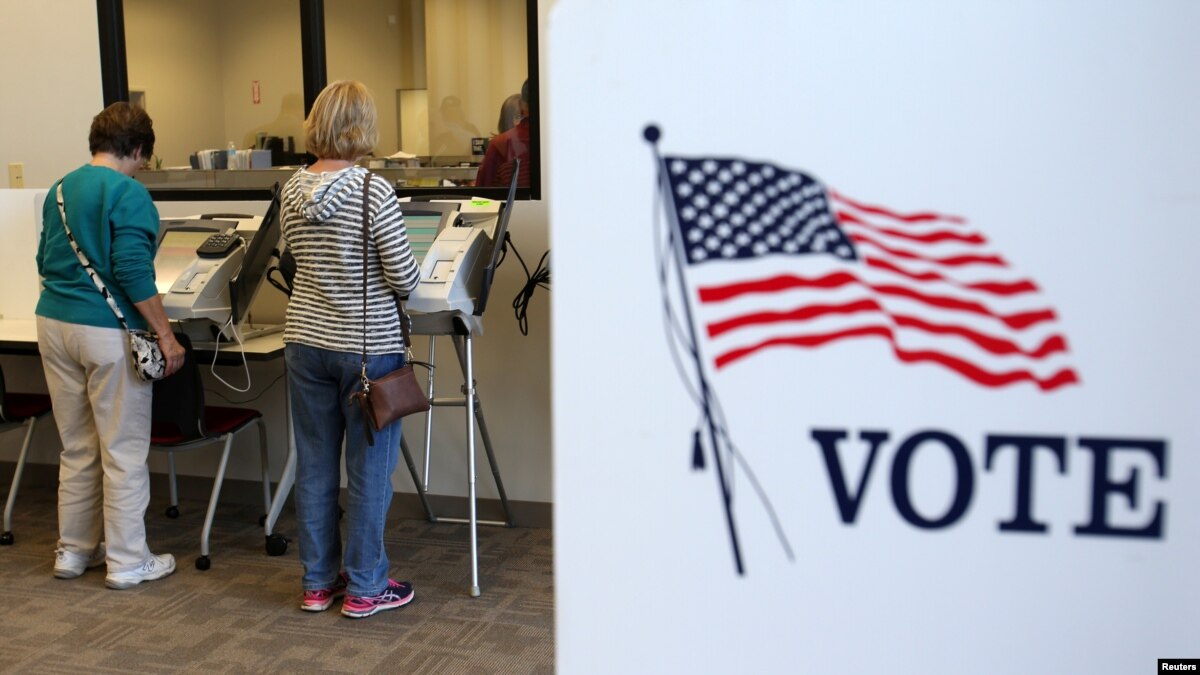
Federal judges on Wednesday ordered Ohio to allow voters who had been purged for not voting over a six-year period to participate in this year's election.
A divided 6th U.S. Circuit Court of Appeals panel granted an emergency motion sought by voting-rights groups. The ruling overturned in part an Oct. 10 ruling by a federal judge that said voters haven't been illegally purged from Ohio's rolls.
Plaintiffs led by the A. Philip Randolph Institute in June lost their broader challenge to Ohio's election administration process as unconstitutional when the U.S. Supreme Court ruled in favor of Ohio's practices.
But they continued to challenge the confirmation notices the state sent to voters that set off the process of removing them from county voter rolls after not voting in three federal elections or taking other voting-related actions. They said the letters were too vague on letting recipients know the consequences of not responding.
"Plaintiffs have a reasonable, and perhaps even greater, likelihood of success on the merits of their claim that defendant's confirmation notice did not adequately advise registrants of the consequences of failure to respond, as the NVRA (National Voting Rights Act) requires," the court ruled Wednesday.
Judges Julia Smith Gibbons and Eric Clay formed the majority. Judge Eugene Siler Jr. disagreed, saying the plaintiff claims were "all speculation."
Republican Secretary of State Jon Husted said he wouldn't fight the order, to avoid "an unnecessary source of contention with election only five days away." Ohio's procedures will eventually be upheld again, he said, and the state is committed to making it "easy to vote and hard to cheat."
Husted is running for lieutenant governor on a ticket with Attorney General Mike DeWine, who is in a tight race for Democratic gubernatorial nominee Richard Cordray.
The voting-rights groups said that some elections in Ohio, traditionally a swing state, have been settled by small margins, and that turning away potentially thousands of voters could alter outcomes.
"The court's decision will allow more Ohio voters to have their voices heard next Tuesday," attorney Stuart Naifeh of the Demos organization said via email. "Every vote counts, including those cast by voters who may not have been engaged in the political process in recent years. ... In today's ruling, the court recognized that the right to vote is too important to allow states to take it away without giving voters meaningful notice."
Partisan fights over ballot access have been playing out around the country. Democrats have accused Republicans of trying to suppress votes from minorities and poorer people who tend to vote for Democrats. Republicans have argued that they are trying to promote ballot integrity and prevent voter fraud.
The 6th Circuit panel found there wasn't an emergency need to block "purges," and that it could consider that part of the appeal later.
Husted said after the Supreme Court ruling in June that no more voters would be removed before the Nov. 6 election.
US States Split on Allowing Citizen Ballot Initiatives

Every two years, citizens across the U.S. manage to place some eye-catching measures on state election ballots, posing questions to voters that can be divisive and sometimes historic. But more than half of states offer no such opportunity.
Twenty-four states — mostly in the Western half of the country — have ways for citizens to bypass the Legislature by gathering signatures and taking proposals directly to voters. In one of those states, Illinois, the process is so restrictive that only one citizen initiative has ever passed.
In the other 26 states, there's no option for ballot measures — and no sign that politicians are eager to create one.
According to the National Conference of State Legislatures, the first state to adopt the initiative process was South Dakota in 1898. Since then, 23 other states have followed suit, but none since Mississippi in 1992.
"Overall, the breakdown isn't changing," said Patrick Potyondy, the NCSL's legislative policy specialist. "Whatever state you're from, you think your process is normal."
States with an initiative process include liberal bastions such as California and conservative strongholds such as Idaho. There's similar diversity with non-initiative states, which include Republican-controlled Texas and Democratic-dominated New York.
In the 1970s and `80s, some leading Texas Republicans favored creating an initiative process, and until 1994 that stance was part of the state GOP's platform. With Republicans in full control of state government since then, there's been no serious discussion at the statehouse of allowing citizen initiatives.
"It hasn't been talked about for 20 years," said Republican Jerry Patterson, who served three terms as state land commissioner. "If you're out of government, you're in favor of initiatives. If you're in government, they become not so appealing."
Cal Jillson, a political science professor at Southern Methodist University, said the initiative process became entrenched in many Western states during the progressive area of the early 1900s.
"It was part of the reaction to political party corruption to allow citizens to directly offer initiatives," he said. "Texas has always been more skeptical of citizen involvement. ... The lawmakers and lobbyists think the deals they cut are preferable to any decision the voters might make."
At New York's statehouse, there's been little serious discussion of the initiative process since Republican George Pataki touted the concept during his tenure as governor from 1995 to 2006. With the Legislature and major labor unions opposing any change, it would likely take a constitutional convention to allow it, but 83 percent of voters in 2016 rejected holding such a convention.
Likewise, in the states that allow citizen initiatives, there's been no serious talk of abandoning the process. But political battles have been waged over efforts to restrict it.
In California, Gov. Jerry Brown in 2013 vetoed a bill passed by his fellow Democrats in the Legislature that would have limited the use of paid circulators to collect signatures for proposed ballot measures. Labor unions backed the bill, saying it would "prevent billionaires and wealthy corporations from hijacking the ballot initiative process." Brown said the bill was flawed, but encouraged further efforts to improve the process.
In 2014, Brown signed a bill inviting groups that were promoting initiatives to work with lawmakers in the hopes they could strike a compromise and keep the measure off the ballot.
Because of its size and relatively accommodating initiative process, California has produced some of the most tumultuous and expensive ballot-measure campaigns.
Of the eight initiatives on California's Nov. 6 ballot, the costliest thus far is a measure that would cap profits for dialysis clinics. A health care workers' union has spent about $20 million to support the measure. Major dialysis providers and their allies have contributed about $100 million in opposition, seeking to prevent the measure from becoming a model for other states.
More than $35 million has been contributed by supporters and opponents of a proposal to repeal California's gas tax.
Susan Lerner, executive director of Common Cause New York, previously worked for a good-government advocacy group in California, giving her a clear picture of the states' contrasting policies.
"I've worked in the two extreme examples of how much dysfunction there can be," she said. "In California, there's too much direct democracy and in New York there's none. Neither is the right solution."
"I came out of California feeling its initiatives were out of control — and now I'm nostalgic for them," she added, recalling instances when California lawmakers would tackle difficult issues to defuse a potential initiative campaign.
Lerner expressed interest in a compromise proposal floated unsuccessfully about 20 years ago in Vermont. Called the Citizen Initiative, it would have enabled voters — if they gathered enough signatures — to put a policy proposal before the Legislature and require an up or down vote on it.
Josh Altic, a ballot-measure expert at the online political encyclopedia Ballotpedia, said the high spending on initiatives in California and elsewhere provides ammunition for critics of the process, who see it as vulnerable to powerful out-of-state forces.
"The narrative for those people is that this isn't a grassroots process," he said. "This is a process that's easy to use for large wealthy interest groups and hard to use for the average citizen."
California has placed more than 370 citizen initiatives on its ballot since adopting the process in 1911, with about one-third winning approval. In contrast, Illinois has voted on a policy-making initiative only once, in 1980, when voters reduced the Legislature's size from 177 members to 118.
Initiatives in Illinois can be used only to change the structure and function of the Legislature, said Matt Dietrich, spokesman for the state election board.
Craig Burnett, a political science professor at Hofstra University on Long Island, said powerful politicians in non-initiative states generally don't want to give citizens a means of bypassing lawmakers. But overall, he said, the initiative process is popular wherever it exists.
"It can be misused or manipulated — it can be a little silly at times," he said. "But on the whole, it ends up being a positive avenue for voters to express themselves."
Read More US States Split on Allowing Citizen Ballot Initiatives : https://ift.tt/2Jvkqx2AP FACT CHECK: Trump far off Track on Birthright Citizenship

President Donald Trump has astonished legal scholars with his claim that he can end birthright citizenship with a swipe of his pen. No, they say, he can’t.
Trump also went far off track in asserting that the U.S. is the only country that automatically grants citizenship to anyone born in the country. Many do.
His comments in an interview with “Axios on HBO”:
TRUMP: “It was always told to me that you needed a constitutional amendment. Guess what? You don’t. ... Well, you can definitely do it with an act of Congress. But now they’re saying I can do it just with an executive order.”
THE FACTS: Scholars widely pan the idea that Trump could unilaterally change the rules on who is a citizen. It’s highly questionable whether an act of Congress could do it, either, though it is conceivable that legislators could change the rules regarding children born in the U.S. of parents who are in the country illegally.
Peter Schuck is perhaps the most prominent advocate of the idea that birthright citizenship is not conveyed by the Constitution to children of parents who are living illegally in the U.S. Even he says “Trump clearly cannot act by” executive order.
“I feel confident that no competent lawyer would advise him otherwise,” he said by email Tuesday. “This is just pre-election politics and misrepresentation and should be sharply criticized as such.”
Schuck, of Yale, and colleague Rogers Smith of the University of Pennsylvania have argued since the mid-1980s that Congress can set the rules for providing citizenship to U.S.-born children of parents who came illegally.
But most scholars on the left and right share the view that it would take a constitutional amendment to deny automatic citizenship to children born in the U.S. to parents who are in the country illegally.
James Ho, a conservative Trump-appointed federal appeals court judge, wrote in the Green Bag legal journal in 2006 that birthright citizenship “is protected no less for children of undocumented persons than for descendants of Mayflower passengers.”
Stephen Yale-Loehr, a Cornell university immigration expert, said the case against Trump’s authority is “not open and shut, but the better view is it would require a constitutional amendment.”
The Constitution’s citizenship clause was part of the post-Civil War amendments that enshrined the rights of African-Americans. The citizenship clause, in particular, was intended to overturn the Supreme Court’s notorious Dred Scott decision of 1857 that held African-Americans were not citizens.
The Supreme Court has never ruled squarely about the clause’s application to children of immigrants who are in the U.S. illegally. Trump did not make a distinction between legal and illegal status in his remarks. An 1898 Supreme Court decision held that the U.S.-born son of legal Chinese immigrants was a citizen under the 14th Amendment; a footnote in a 1982 decision suggests there should be no difference for children of foreign-born parents whether they are in the U.S. legally or illegally.
___
TRUMP: “We’re the only country in the world where a person comes in, has a baby and the baby is essentially a citizen of the United States for 85 years with all of those benefits. It’s ridiculous. It’s ridiculous. And it has to end.”
THE FACTS: That’s flat-out wrong.
The U.S. is among about 30 countries where birthright citizenship — the principle of jus soli or “right of the soil” — is applied, according to the World Atlas and other sources. Most are in the Americas. Canada and Mexico are among them. Most other countries confer citizenship based on that of at least one parent — jus sanguinis, or “right of blood” — or have a modified form of birthright citizenship that may restrict automatic citizenship to children of parents who are on their territory legally.
More broadly, Trump’s view that U.S.-born children of foreigners live a lifetime of taking “all those benefits” ignores the taxes they pay, the work they do and their other contributions to society.
Oprah Winfrey to Campaign in Georgia for Stacey Abrams
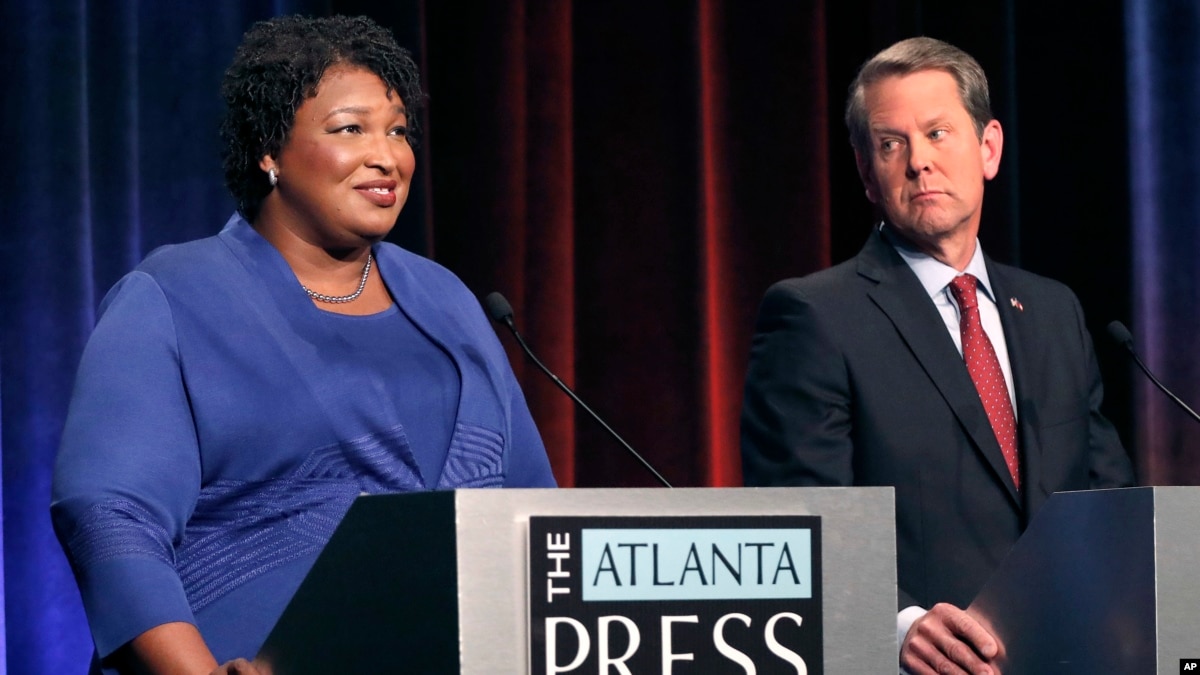
Oprah Winfrey will campaign Thursday for Georgia Democratic gubernatorial candidate Stacey Abrams.
Abrams' campaign confirmed that the billionaire media mogul will appear with Abrams, who is vying to become the country's first black female governor. The Atlanta Voice and BuzzFeed News first reported Winfrey's plans.
Winfrey is part of a caravan of high-profile figures marking the final days of Abrams' tight race with Republican Brian Kemp.
Vice President Mike Pence has multiple stops scheduled with Kemp.
Former President Barack Obama will campaign Friday for Abrams, and President Donald Trump is slated to be in Georgia on Sunday.
Kanye West Distancing Himself from Politics
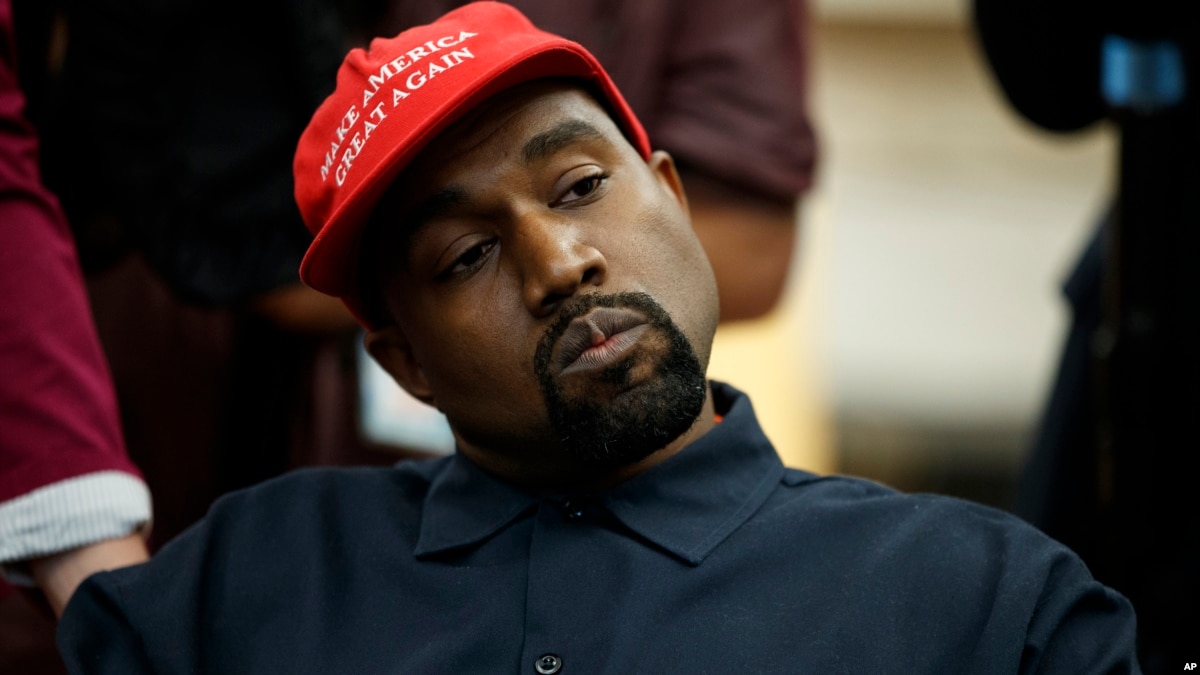
Three weeks after a bizarre White House meeting with U.S.
President Donald Trump, rapper Kanye West said on Tuesday he was
distancing himself from politics.
West, Trump's biggest celebrity supporter, also sought to distance himself from a new campaign that encourages black Americans to quit the Democratic
Party.
Evangelicals Fired Up But Also Conflicted Ahead of Midterms

Kimberly Williams acknowledges that she may not be what many people think of when they hear the phrase “evangelical Christian.”
In fact, Williams herself isn’t sure she embraces the label these days, even though she leads worship at the District Church in Washington, D.C., which by any definition is evangelical in belief.
“I’m still wrestling with it,” she says, worried the phrase has become too politicized and misunderstood. “As a woman and as a person of color, it’s just hard,” says Williams, an African-American.
That’s a growing sentiment within church-going evangelical circles in the U.S., especially among the expanding number of evangelicals who are nonwhite.
Almost 1-in-3 American evangelicals are not white, according to a 2017 study by the Public Religion Research Institute. And though many evangelicals of color embrace a conservative theology, their political beliefs are more varied than is commonly portrayed in the media.
As the 2018 midterm elections approach, the schisms suggest evangelical Christians, who make up a quarter of the population, may not be as solidly supportive of President Donald Trump and the Republican Party as many suspect.
‘A real racial gap’
To hear Trump talk, he makes it sound as if he has the support of nearly every single evangelical in America.
“I love the evangelicals,” Trump told Pat Robertson, the founder of the Christian Broadcasting Network, in an interview last July. “They came out in massive numbers. And on top of that, I got 83 percent.”
A year later, Trump claimed that 84 percent of evangelicals had voted for him in 2016.
What Trump appears to be referencing are exit polls that suggested more than 80 percent of white evangelicals voted for him for president.
But that figure only includes white evangelicals, not evangelicals as a whole.
“America is this bubble where we still act like evangelicals are just white evangelicals, and they’re not,” says Jim Wallis, who heads Sojourners, a Washington, D.C.-based evangelical group focused on social justice issues.
“Evangelicals of color voted overwhelmingly against Donald Trump, while white evangelicals voted in a vast majority for him,” says Wallis. “There’s a real racial gap.”
The political divide is so drastic that many polling organizations, including Pew Research Center, don’t even attempt to measure generic evangelical political opinion without considering race.
“White and nonwhite evangelicals are at opposite ends of the political spectrum,” says Anna Schiller of Pew. “Analyses that explore the link between religions and partisanship without taking race into account would obscure far more than they would illuminate.”
When asked about their partisan leanings, Pew found two-thirds of white evangelical Protestants lean toward or identify with the Republican Party. For nonwhite evangelicals that figure was reversed, with 63 percent preferring the Democratic Party.
No clear definition
Another complication: there is no commonly agreed upon definition for the word “evangelical.”
The concept is so nebulous that historian George Marsden famously concluded that an evangelical is “anyone who likes Billy Graham,” the late evangelist.
Of course, evangelicals share certain features. They are almost all protestant. They usually believe in a personal conversion experience, think of the Bible as God’s literal words, and have some propensity to share their faith.
But most polls don’t ask about beliefs; instead, they go by whether someone self-identifies as evangelical -- a tactic that some say produces misleading results.
If polls asked how often someone attends church, for instance, the data would totally change, posits Aaron Graham, lead pastor at the District Church in Washington.
Graham, whose church avoids either a conservative or liberal label, makes a distinction between the political and religious meaning of the word “evangelical.”
In a political sense, the word is often used to describe anyone who is "from the South, conservative, and white," he says.
The District Church, which represents 60 different nationalities, shows the complexity of the issue.
“I would venture to say that most people in our congregation would embrace being evangelical theologically but not politically in the way it’s understood today,” he says.
In other words: polls are likely skewed because some people who aren't practicing evangelicals will tell pollsters they are, while many devout evangelicals won't even publicly embrace the label.
Trump supporters energized
To be sure, a vast number of evangelicals do love Trump and are excited to vote in a midterm election they see as a referendum on his administration. Trump has been championed by some of the most prominent leaders in the church, including evangelist Franklin Graham, son of Billy Graham, and Jerry Falwell Jr., president of Liberty University in Lynchburg, Va.
Many evangelicals are energized over what they considered unfair attacks on conservative Supreme Court Justice Brett Kavanaugh, who was accused of sexual misconduct in high school. He rejected the accusations as a political smear.
“We’ve seen an uptick in excitement from our base,” says Lance Lemmonds of the conservative Faith and Freedom Coalition.
Lemmonds, whose organization has knocked on over a million doors in a get-out-the-vote campaign, says conservatives are encouraged by Trump’s stance on abortion.
“This has been the most pro-life administration we’ve ever seen,” Lemmonds says. “And so evangelical approval of this administration is through the roof to this day.”
For this group of evangelical voters, issues like abortion, the Supreme Court and Israel have outweighed what they see as the personality flaws of Trump, a thrice-married, foul-talking, former casino mogul.
“We did not go to the polls to elect our local pastor to our church,” Lemmonds says. “Those are two completely separate issues. In many ways, it’s been compartmentalized.”
Political impact
Despite the growing diversity in American evangelicalism, white evangelicals continue to dominate the political space, says Janelle Wong, professor of American Studies at the University of Maryland.
“White evangelicals turn out at higher rates than Asian-Americans and Latino evangelicals, many of whom aren’t registered yet or aren’t citizens,” says Wong, author of "Immigrants, Evangelicals and Politics in an Era of Demographic Change."
Another factor: white evangelicals are concentrated in politically important swing states, while minority groups tend to live in liberal states like California.
However, minority voters have shown they can make the difference in local or state elections.
Most notably, African-American voters in Alabama were thought to have helped swing the recent U.S. Senate election toward Doug Jones, a Democrat, who defeated Roy Moore, a former Republican jurist who had been accused of having sexual relations with under-aged girls years ago.
But for many minority evangelical voters, who are conservative on issues such as abortion but liberal on things like immigration or the environment, there is no clear partisan home.
All of which suggests that when it comes to evangelical politics in the U.S., the truth is more complicated than it seems.
Read More Evangelicals Fired Up But Also Conflicted Ahead of Midterms : https://ift.tt/2Q6RsWRAhead of Midterms, Evangelicals Fired Up But Also Conflicted

As the midterm elections approach, there's been a lot of talk about record levels of evangelical support for Donald Trump and his Republican Party. But the evangelical community in America, which makes up a quarter of the population, is more divided than many think, as VOA's Bill Gallo reports.
Read More Ahead of Midterms, Evangelicals Fired Up But Also Conflicted : https://ift.tt/2DeRp8HUS Midterm Campaign Enters Final Week Amid Tension, Uncertainty

With less than one week to go before a crucial U.S. midterm congressional election, Americans are on edge after a massacre at a Jewish synagogue in Pittsburgh and the arrest of a man charged with sending pipe bombs to prominent Democrats. Voters will elect a new Congress on November 6, and the results could shift the balance of power in Washington and have a profound impact on the next two years of Donald Trump’s presidency. VOA National correspondent Jim Malone has more.
Read More US Midterm Campaign Enters Final Week Amid Tension, Uncertainty : https://ift.tt/2Q92XNJTuesday, October 30, 2018
Mueller Refers Alleged Plot to Make False Claims About Him to FBI
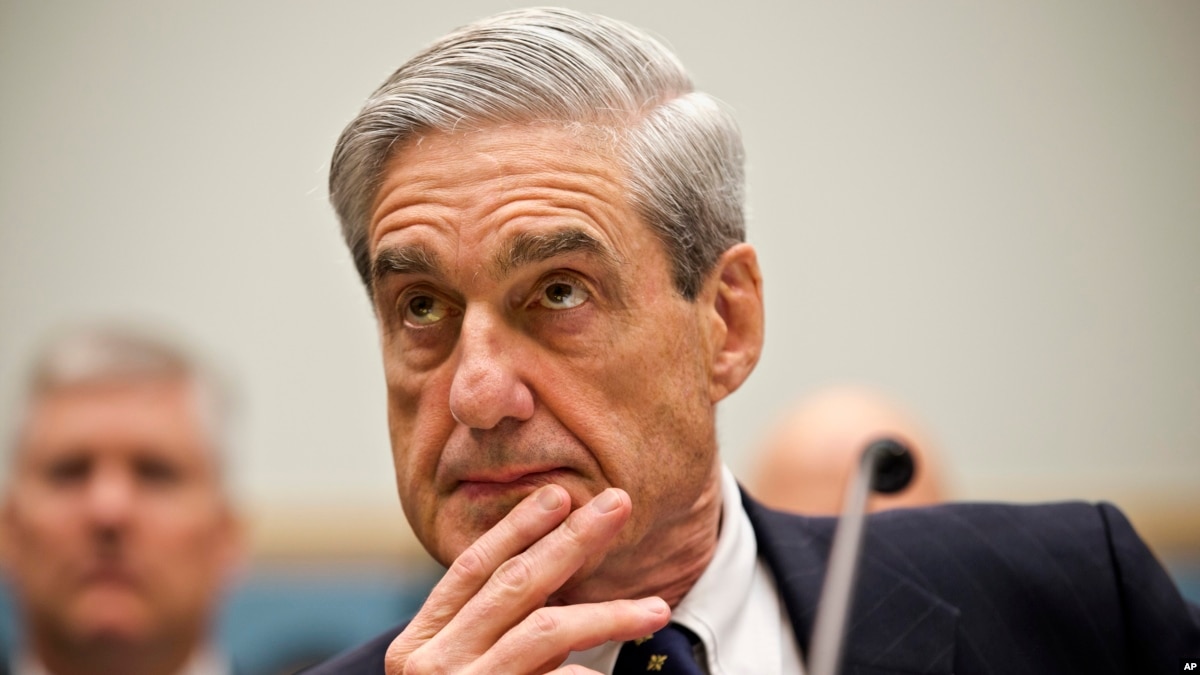
Robert Mueller's office has referred to the FBI allegations that women were "offered money to make false claims" about the special counsel, according to Mueller's spokesman.
In a statement, spokesman Peter Carr said once the office learned of the allegations, it immediately referred the matter to the FBI for investigation.
The statement didn't specify what the claims were, but the referral to the FBI — and a rare public statement about it from the special counsel's office — suggested that Mueller's office thought there was a potential crime for federal law enforcement to investigate.
The attempt to spread what Mueller's office said were false claims about him also appeared to be an effort to discredit the former FBI director as his team enters a critical stage of its investigation into whether the Trump campaign coordinated with Russia to interfere in the 2016 U.S. presidential race and whether the president tried to obstruct justice.
Mueller's office has charged 32 people so far, with four former associates of the president pleading guilty and agreeing to cooperate with investigators. A grand jury in recent weeks has heard testimony centered on another former Trump aide, Roger Stone.
Concerns Growing Over Rejections of Vote-by-Mail Ballots
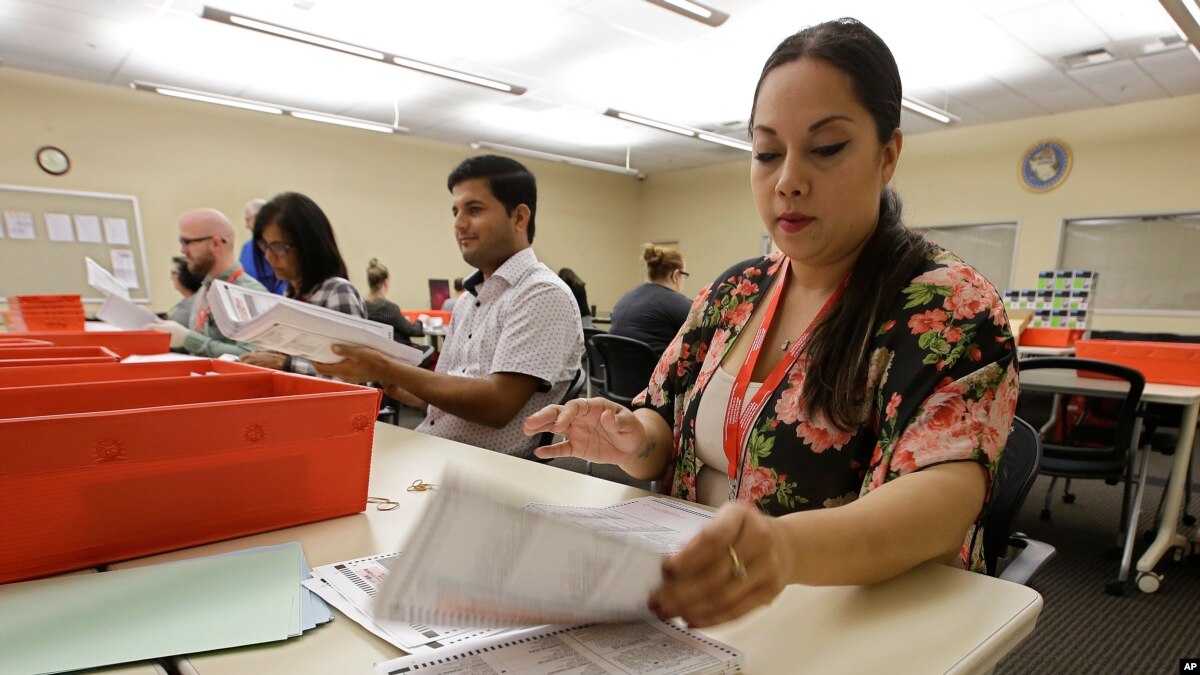
Drawing on her years of military experience, Maureen Heard was careful to follow all the rules when she filled out an absentee ballot for the 2016 election.
She read the instructions thoroughly, signed where she was supposed to, put the ballot in its envelope and dropped it off at her county elections office in New Hampshire. She then left town to return to a temporary federal work assignment in Washington, D.C.
"I have learned over the years, many years in the military of filling out forms, how to fill out forms — and I was very intimidated by the process," said Heard, who served in the Air Force and as a lieutenant in the U.S. Coast Guard. "I was like, 'Oh my gosh, I have to make sure I get it absolutely right.' And then it didn't count."
Heard, 57, discovered last year that she was among roughly 319,000 voters across the country whose absentee ballots were rejected during the last presidential election. The reasons varied, ranging from missing deadlines to failing to sign their ballot.
Heard's ballot was tossed out because the signature did not match the one on file at her local election office.
More people than ever are returning their ballots by mail or dropping them off at a local election location rather than voting in a booth on Election Day. Those developments make it easier to cast ballots and are designed to boost turnout.
The trend also is raising concerns about whether voters can be assured their ballots will count or be notified in time if there is a problem. Voting rights activists want to ensure that voters are given a reasonable chance to fix any problems.
Earlier this month, the ACLU and other groups filed lawsuits in Georgia after an Atlanta-area county reported a comparatively high rate of rejected absentee ballots during the start of early voting. Those actions followed similar lawsuits in New Hampshire and California.
"It's hard to see what is missing," said Kim Alexander, president of the California Voter Foundation, which advocated for changes to California law. "People are all focused on what is the vote count. They are not focused on what ballots weren't counted."
Nearly one of every four ballots cast in 2016 came through the mail or was handed in at a drop-off location, according to the U.S. Election Assistance Commission. The commission's data show that 99 percent of completed absentee and mailed ballots are eventually counted.
Election officials use signature matching to verify a person's identity, but advocates say many election offices lack training and standards. Matching signatures is particularly fraught because a person's handwriting can change over time and be affected by age or disability.
In August, a federal judge ruled that New Hampshire's signature-matching process was "fundamentally flawed" because voters are not given notice if it's the reason a ballot was rejected. She also said the election office workers inspecting the signatures did not receive training in handwriting analysis or signature comparisons.
"For the most part, signature variations are of little consequence in a person's life," U.S. District Judge Landya McCafferty wrote. "But in the context of absentee voting, these variations become profoundly consequential."
A judge in California sided with the ACLU in a similar lawsuit in March.
Last month, California Gov. Jerry Brown signed into law the "Every Vote Counts Act," which requires local election officials to notify voters of mismatched signatures at least eight days before election results become certified. Voters then have several days to resolve the issue.
In Georgia, the ballot rejections in Gwinnett County were running well ahead of the other large counties ringing Atlanta. Gwinnett County had rejected 9.6 percent of all absentee mail ballots as of October 12, while DeKalb County had rejected 1.9 percent and Fulton County had rejected none, according to court filings.
Candice Broce, spokeswoman for the secretary of state's office, said state officials were aware of the concerns and opened an investigation.
Georgia law requires voters to be told "promptly" of a problem, but does not specify a time period. In Gwinnett County, this means sending a voter notice in the mail within three days, according to county officials.
Voters who are notified of a problem can request a new ballot or vote in person, but the law does not provide time after the election to resolve the problems. That potentially affects voters who drop off their ballots on or near Election Day.
A federal judge ruled last week that Georgia election officials cannot reject ballots for a signature mismatch without providing voters an opportunity to verify their identity; they would have almost a week to do so under the ruling. The state plans to appeal.
"We're not attacking signature-matching as a way to do something, as a tool for confirming identity," said Sophia Lakin, a staff attorney with the ACLU. "We are concerned about making sure that it's not something that prevents someone from voting. It all depends on how it's being implemented."
Three states — Colorado, Oregon and Washington — send ballots in the mail to all registered voters.
Oregon allows voters 14 days after an election to resolve a signature mismatch and provides training to local election officials about how to verify signatures.
Part of the training includes an acknowledgement that signatures can change over time, said Nancy Blankenship, clerk of Deschutes County in Bend, Oregon. Any time voters correspond with her office, their signatures are added to their file so election workers have a history of signatures to use for comparison.
Read More Concerns Growing Over Rejections of Vote-by-Mail Ballots : https://ift.tt/2DdjZr2Democrats Gain Steam in Analyst Forecasts for US House Races
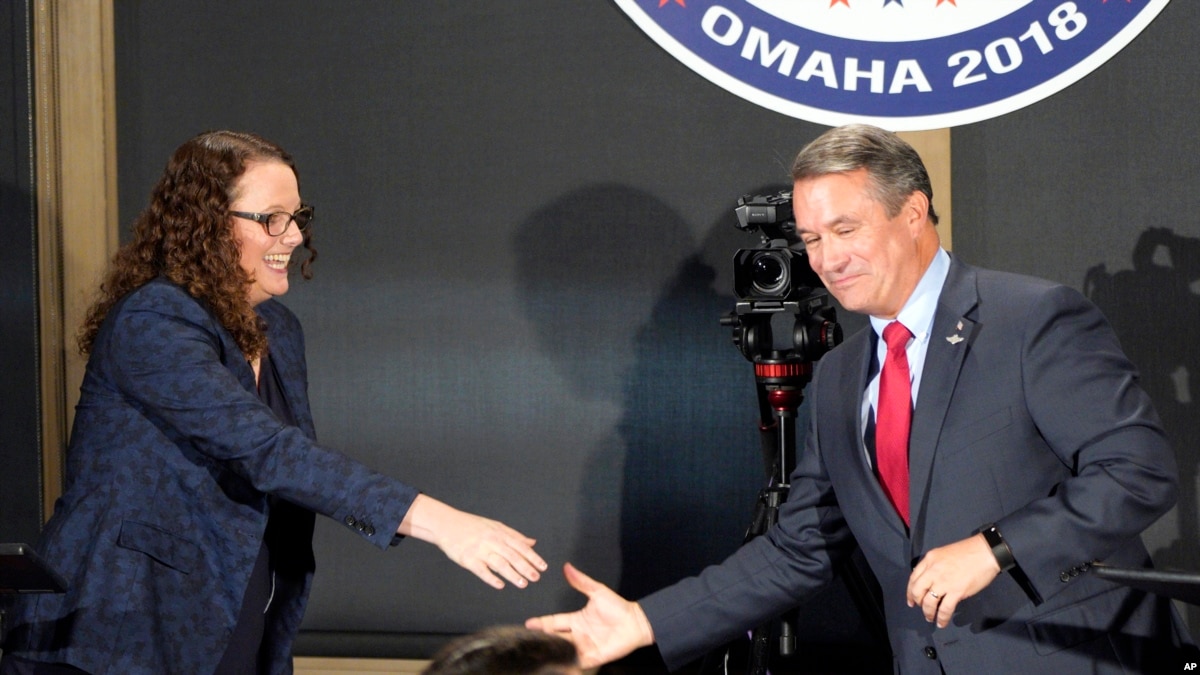
As of Tuesday, there were 65 U.S. House of Representatives races widely seen as competitive or leaning against the incumbent party.
The outlook for Democrats had improved in 48 of them during the seven weeks since early September in the eyes of at least one of a trio of political forecasting groups: Cook Political Report, Inside Elections and the University of Virginia's Center for Politics.
Only seven Republicans saw improved ratings among the competitive races. Those congressional districts are Minnesota-8, Illinois-12, Virginia-2, Ohio-1, West Virginia-3, Texas-23 and Nevada-4.
In two of those races - Virginia-2 and Ohio-1 - one of the three groups saw improved chances for the Republican candidate and another saw odds improving for the Democrat.
An improvement in the odds for a party does not necessarily mean its candidate is now favored to win. Some candidates went from being seen slightly or solidly ahead to being in a race seen as a "toss up.”
Following are the competitive races where analysts upgraded the odds of winning for Democrats and Republicans, together with the number of forecasting groups upgrading each party's chances.
District Party with improved chances
(incumbent party) (number of handicappers
seeing improved odds)
Arizona-2 (R) Democrat (2)
California-10 (R) Democrat (1)
California-25 (R) Democrat (1)
California-45 (R) Democrat (2)
Californa-48 (R) Democrat (1)
California-49 (R) Democrat (1)
California-50 (R) Democrat (1)
Colorado-6 (R) Democrat (3)
Florida-15 (R) Democrat (3)
Florida-26 (R) Democrat (3)
Florida-6 (R) Democrat (3)
Georgia-6 (R) Democrat (2)
Georgia-7 (R) Democrat (3)
Iowa-1 (R) Democrat (1)
Iowa-3 (R) Democrat (1)
Illinois-12 (R) Republican (2)
Illinois-14 (R) Democrat (2)
Illinois-6 (R) Democrat (3)
Kansas-2 (R) Democrat (1)
Kansas-3 Democrat (3)
Maine-2 (R) Democrat (1)
Michigan-11 (R) Democrat (2)
Michigan-8 (R) Democrat (1)
Minnesota-2 (R) Democrat (3)
Minnesota-3 (R) Democrat (3)
Minnesota-8 (D) Republican (3)
North Carolina-13 (R) Democrat (2)
North Carolina-2 (R) Democrat (2)
North Carolina-9 (R) Democrat (1)
New Jersey-11 (R) Democrat (1)
New Jersey-2 (R) Democrat (1)
New Jersey-3 (R) Democrat (1)
New Jersey-7 (R) Democrat (1)
New Mexico-2 (R) Democrat (3)
Nevada-4 (D) Republican (2)
New York-11 (R) Democrat (2)
New York-19 (R) Democrat (1)
New York-22 (R) Democrat (1)
New York-24 (R) Democrat (3)
New York-27 (R) Democrat (3)
Ohio-1 (R) Republican (1) / Democrat (1)
Ohio-12 (R) Democrat (2)
Pennsylvania-1 (R) Democrat (2)
Pennsylvania-10 (R) Democrat (2)
Pennsylvania-17 (R) Democrat (2)
Pennsylvania-6 (R) Democrat (1)
Pennsylvania-7 (R) Democrat (1)
Texas-23 (R) Republican (2)
Texas-32 (R) Democrat (1)
Utah-4 (R) Democrat (2)
Virginia-2 (R) Republican (1) / Democrat (1)
Virginia-7 (R) Democrat (1)
West Virginia-3 (R) Republican (1)
Cambodia Genocide Survivors Overcome Fear, Get Involved Politically
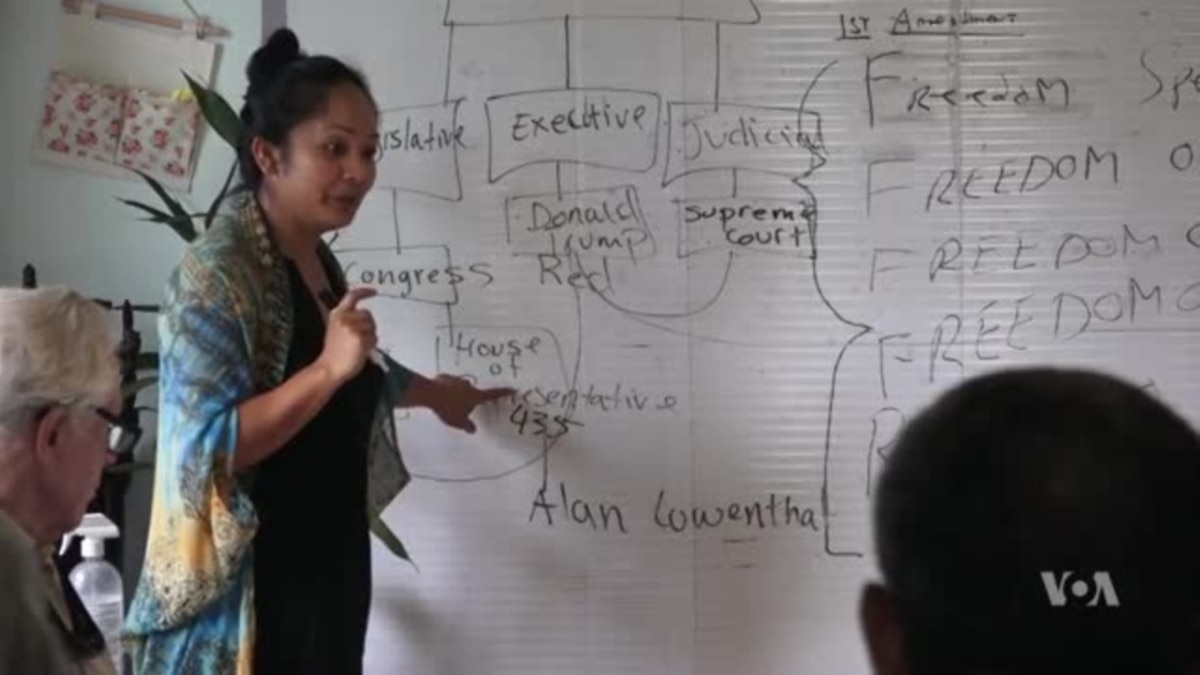
During every election season, as many American citizens prepare to go to the polls, one group of immigrants has traditionally chosen not to get involved. The Cambodian community in the U.S. has been fearful of the government because of its past, but this midterm election is different. The largest Cambodian community in the U.S. is taking political action. VOA’s Elizabeth Lee has their story from Long Beach, California.
Read More Cambodia Genocide Survivors Overcome Fear, Get Involved Politically : https://ift.tt/2SvF7NBCambobian-Americans Flex a Long-Silent Voice in US Midterm Elections

Cambodian-American Laura Som said her mother raised her to never get involved in politics. Her mother would say politics is "a bloodbath, and we don't want to see you walk into that."
A deep fear of government is shared by Cambodians, many of whom experienced the violence of the Cambodian genocide, a four-year period in the 1970s when the communist Khmer Rouge regime killed nearly 2 million people.
"Just the word 'government' would trigger a lot of traumas of killing, violence, not just to ourselves but to our children or to our loved ones," said Som, a community activist who lives in Long Beach, California, the U.S. city with the largest concentration of Cambodians.
Recalling the first time she became involved in local civic activities, Som said, "My mother received a call from a community leader to say how horrible of a mother she was to allow such a young college kid (to) participate in civic engagement events."
Som's experience as a Cambodian-American is not unusual.
During every election season, Cambodian-Americans have remained noticeably silent. Som said her community has traditionally avoided the polls during elections and have taught their children not to get involved.
Som said during the U.S. Census, which attempts to count every resident in the country, many Cambodian-Americans either do not participate or misreport the numbers in their households because they fear being on a government list.
Civics engagement
However, the 2018 midterm election season is proving to be different. Many Cambodian-Americans in Long Beach are on a mission to create political change for their community by pushing for a seat at the table in city government so their voices can be heard.
The movement was born during a civics class taught by Som at the MAYE Center, a center she founded to help fellow Cambodian genocide victims heal from the trauma they suffered and located in the heart of Long Beach's Cambodia Town. (The four elements of self-healing at the MAYE Center include meditation, agriculture, yoga and education.)
One of her students, Vy Sron, remembered the discussion that started a tidal wave within the community.
"When the teacher said that (the) Cambodian community does not have a political voice like other communities, I asked the question of 'why does the Cambodian community not have such political voice?' "
Som said she believes more political representation would help bring a cultural awareness and sensitivity to the needs of her community.
"We have members, elders who would go up to council and speak Cambodian, and we didn't have anyone translating," Som said. "We're people of the earth. We want plants and gardens. This is how we heal ourselves, but yet we are put in a community where it's a cement jungle."
About 20,000 Cambodian-Americans live in Long Beach, or about 4 percent of the city's population of 486,000, according to the Long Beach Convention and Visitor's Bureau. More than half of the Cambodian-Americans in Long Beach live in and around an area known as Cambodia Town, a 1.2-mile business strip of Khmer-owned restaurants, shops and temples, according to the bureau.
However, the area in and around Cambodia Town is currently part of four of the city's nine council districts. And each of the four districts is represented by a different council member, meaning any political clout the Cambodian community might have is diffused.
The students in the MAYE Center civics class decided to take action, organizing their community and collecting signatures for a petition to ask the city of Long Beach to redraw district lines so the largely Cambodian community could be consolidated into one district, with one representative.
But they are learning that seeking representation is a complicated matter that takes work and patience.
Cities typically look at redrawing district boundaries every 10 years, after the U.S. Census, so the population can be equally divided. The Long Beach city charter also allows the city to redistrict every five years or at any time the City Council feels there is a need.
In the last redistricting, in 2011, the Long Beach City Council adopted criteria for redrawing district lines, including "splits in neighborhoods, ethnic communities and other groups having a clear identity should be avoided."
Som said council members did not follow that criteria when they split the area in and around Cambodia Town among four districts. The MAYE Center group wants the city to redraw the boundary lines, consolidating the Cambodia Town area into one district, before the next U.S. Census in 2020. The new district would allow Cambodian-Americans to vote for someone who would more solidly represent their interests in the 2020 election cycle, the group said.
"All the students took part in educating one Cambodian resident at a time, (and) have collected 3,000 signatures in two months," Som said.
Civil rights attorney Marc Coleman said other ethnic minority groups have been successful with similar endeavors in the past.
"The Latino community did the same thing, and they created what ... they call the Latino District," said Coleman, who is also treasurer of the MAYE Center.
Midterm elections
The group's efforts are twofold in this election. The Cambodian community is also supporting a proposal on the November 6 ballot to amend the Long Beach city charter to create an independent, citizen-led redistricting panel, taking that duty away from City Council members. The hope would be to have a member of the Cambodian community on the panel, the group added.
Long Beach city officials, however, said redistricting of the city will not be considered until after the 2020 Census to get the most accurate population count. Who is involved in the redistricting process will depend on the results of the November vote on the independent commission.
Guatamalan native and Long Beach resident Juan Ovalle, who also fled an oppressive government, said he supports the Cambodian community's efforts for representation, but he opposes the ballot measure, calling it a façade by politicians that would only allow residents to think they have more control over redistricting. He warned the Cambodian community not to be fooled.
"It (the redistricting committee) is still beholden to political influences. Those that will select the members of the redistricting committee are basically politicians," Ovalle said.
Coleman, of the MAYE Center, in responding to Ovalle said, "This is as good as we could get it. Nothing is perfect. Nothing is foolproof, but we feel confident this is a good system."
Knowledge is power
Charles Song, who survived the Cambodian genocide, said he had tried in the past to organize the Long Beach Cambodian community, but was never very successful.
"The roadblock is always here, because when you're talking about the Cambodian community, the first thing is fear," he added.
Song said experts from outside the community, whom he credits with empowering residents by teaching them how city government works, are behind the intense interest among Cambodian-Americans in this year's election.
For Som, whose civics class ignited the students' interest in local politics, this has also been an exercise in trying to persuade her mother to trust the U.S. government.
"I have to remind her that this is a different political landscape, that many have died in this country to give us this kind of voice and that we could do it," she said.
Read More Cambobian-Americans Flex a Long-Silent Voice in US Midterm Elections : https://ift.tt/2Jo9OQFMonday, October 29, 2018
US Supreme Court Turns Away Pennsylvania Electoral Map Dispute
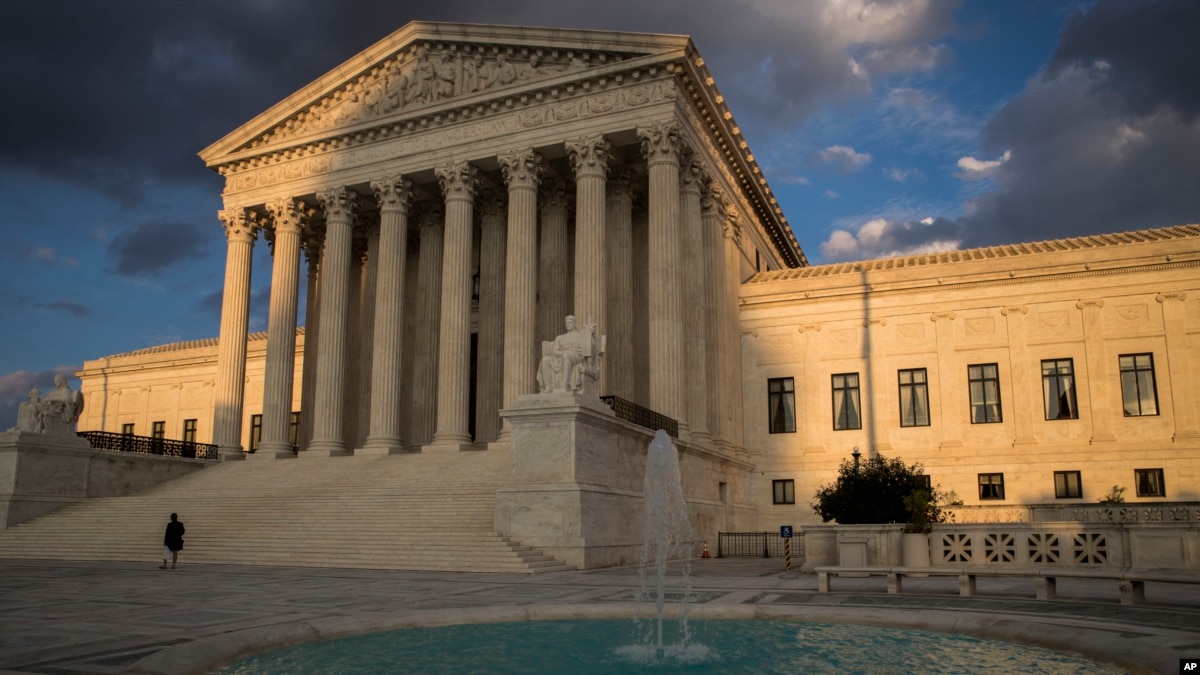
The U.S. Supreme Court on Monday rebuffed a bid by Republican legislators in Pennsylvania to reinstate a congressional district map struck down by that state’s top court as unlawfully biased in favor of Republicans.
The justices rejected the appeal of a January Pennsylvania Supreme Court ruling invalidating the Republican-drawn map because it violated the state constitution’s requirement that elections be “free and equal” by marginalizing Democratic voters.
The case involves a practice called partisan gerrymandering in which electoral maps are drafted in a manner that helps one party tighten its grip on power by undermining the clout of voters that tend to favor the other party. The practice has been used for two centuries but has become more extreme with the use of computer programs to maximize the effects of gerrymandering in a way that critics have said warps democracy.
Millions of Americans Barred From Voting This Election

The U.S. has more former felons than at any time in the country’s history - about 6.1 million men and women. But whether or not those felons have the basic democratic right to vote varies dramatically state by state - from Florida, where ex-felons wait years to battle through an uncertain process, to Vermont, one of two states in the nation that allows currently incarcerated prisoners the right to vote. VOA's Congressional correspondent Katherine Gypson reports.
Read More Millions of Americans Barred From Voting This Election : https://ift.tt/2yMpYPZMillions of Ex-Convicts Struggle to Regain Their Right to Vote
A life-changing mistake could have cost Dan Close his right to vote, but the state of Vermont said otherwise.
Convicted 14 years ago on a felony charge of selling cocaine, Close was surprised to learn that he could still vote in state and national elections. That's because Vermont and nearby Maine are the only states in the nation that allow felons to retain their voting rights, even while they are incarcerated or completing their probation sentences.
By contrast, 4.7 million convicted felons nationwide who have completed their sentences are not allowed to vote. The Sentencing Project, a research group, found that 1 in 40 adult Americans accounting for 2.5 percent of the voting age population are impacted by felon disenfranchisement.
Moreover, voting-age black Americans are four times more likely to lose their voting rights than white individuals because of disparities in the U.S. criminal justice system. These ex-felons account for a significant number of voters who will not be able to vote in congressional and gubernatorial races in the Nov. 6 midterm election.
Debt paid, or more to prove?
Many supporters of felon voting rights say convicted criminals pay their debt to society by completing sentences handed down by judges and juries and shouldn't be further punished. They argue that ex-offenders should be allowed to fully participate in the political process when they rejoin their communities.
Opponents argue that felons have broken the social contract by committing a crime and must prove their worthiness to be fully readmitted into the society. The requirements for regaining voting rights vary from state to state and sometimes can take many years to fulfill.
State processes by which felons prove their worthiness are heavily influenced by two post-Civil War amendments to the U.S. Constitution addressing equal rights following the end of slavery. The 15th Amendment gave African American men the right to vote, while the 14th Amendment gave states the right to deny felons the vote, as well as the ability to decide the process by which it can be restored.
"People take it for granted — it's a right. And when any rights are removed, you feel it, you know it," Close said recently during an interview with VOA in Wilmington, Vermont.
"I think if you're an American citizen, you should have that right to vote — whether you're a felon or not," he added. "If you have an interest in politics and the way your country is going and you want to give your say and your opinion, you should be allowed to."
But that's not the case for Yraida Guanipa. She served 11 years in a Florida prison, followed by five years of parole, for drug-related charges. Yet since fully regaining her freedom in 2012, she still can't vote in Florida.
"Nobody can imagine how painful this (imprisonment and parole) can be, and then this?" she said. "I cannot even vote? Under the process right now, I'm not sure if I'm going to be able to vote again if it doesn't change."
Florida has the highest felon disenfranchisement rate by population of any state in the nation, with 1.5 million ex-offenders waiting to regain their voting rights. In a state with 29 electoral votes, the restoration of those rights could have a significant impact on future presidential elections. Republican George W. Bush captured the White House in 2000 after defeating Democrat Al Gore by a hair in Florida in a highly contested election ultimately decided by the Supreme Court. In the 2016 presidential election, Republican Donald Trump prevailed over Democrat Hillary Clinton in Florida by just 112,911 votes or 1.2 percent of the total.
Guanipa is one of nine plaintiffs in a federal class-action lawsuit alleging the state of Florida's review process for restoring felons' voting rights is arbitrary and unfair.
Florida requires felons to wait five to seven years after completing their sentence and any accompanying probation, parole or supervised release before they can submit an application to a state clemency review board for restoration of their voting rights.But the governor has the final say no matter what the clemency board decides.
"There are no set standards, rules or criteria," said Jon Sherman, the senior counsel at the Fair Elections Legal Network who filed the lawsuit. "They apply these vague standards like, ‘Have you turned your life around. Have you shown sufficient remorse?' And what's true for one person won't be true for another. There's no consistency in the application of that vague, subjective standard."
The lawsuit is based on precedents set in U.S. Supreme Court decisions preventing the government from limiting citizens' First Amendment rights to free speech. This is the first case arguing that the process of denying felons voting rights violates First Amendment protections.
The arbitrary nature of the board's decisions, Sherman argues, is incompatible with American democratic principles.
"You have state executive officials playing the role of king, essentially," said Sherman.
Attorneys for Florida governor, Republican Rick Scott, argued that the state constitution gives the governor unfettered discretion in all clemency, pardons and commutations, including the restoration of the right to carry a firearm.
Long before this case is decided, Florida voters will have an opportunity on Nov. 6 to pass Amendment 4, a ballot initiative that would rewrite the state's constitution to automatically restore felon voting rights upon completion of their sentences. Supporters of the initiative collected nearly 800,000 signatures to put the initiative on the ballot. Polls show that anywhere from 60 percent to 70 percent of Floridians support the initiative. At least 60 percent of voters must approve the initiative for it to take effect.
Felon disenfranchisement is part of Democrats' broader concerns over voter suppression nationwide. In the lead-up to the midterm elections, GOP-controlled state legislatures have drawn attention totheir strict voter ID laws and maintenance of voter registration rolls. Georgia officials recently prompted nationwide criticism for removing the names of 107,000 voters who had not voted in prior elections.
But earlier this year, the U.S. Supreme Court ruled 5 to 4 against civil rights groups alleging the state of Ohio's process for purging inactive voters disproportionately impacted minorities.
Analysts say the disenfranchisement of felons has been intertwined with racial relations in this country dating back to the end of the Civil War, when passage of the 15th Amendment to the U.S. Constitution made denial of the right to vote on the basis of race illegal.
According to Sean Morris Doyle, counsel at the Brennan Center for Justice, "There were a number of states — including Florida — which when they were forced to acknowledge and accept the 15th Amendment and provide the right to vote to African-American men, simultaneously put into place provisions like this one, which disenfranchise people with felony convictions in their past."
Doyle said these laws — often referred to as "Black Codes" — were aimed at criminalizing African-American men while denying them the right to vote.
Vermont and Maine — the two states with the highest percentage of white residents — are the outliers in giving current felons the right to vote. Vermont's approach, which has been on the books since at least 1977, is not popular with all of the state's residents.
"You pay a price. You've lost your freedom," said Richard Perry, a Springfield, Vermont, resident who has experience with the issue because of his son's felony conviction for selling marijuana.
Perry said that now that his son is out of jail, he should have the right to vote, but "I just think that, as a rule of thumb, if you're not free to be out here, then you don't necessarily need to vote."
Andrew Kingsbury, a former Vermont corrections officer, said "we're convoluted in saying that you're being punished for things you've done in society that we don't deem to be acceptable, and on the other hand saying, 'Well, you're allowed to have these benefits and rights.'"
Kingsbury said he did not see much prisoner interest in voting during his time as a corrections officer in Vermont. He does not support Vermont's law allowing current prisoners the right to vote but said he understands why restoration of the right is an important part of rehabilitation.
"As soon as a person's reintegrated back into society, and they're now a contributing member to society in a positive manner," said Kingsbury, "I believe that they should have all of their rights — life, liberty and the pursuit of happiness."
It's an opportunity Dan Close is determined to make the most of on Election Day. A fan of President Donald Trump, he said his trip to the polls is "a guarantee —already registered. Ready to rock the red wave."
Denying convicted felons the restoration of their voting rights after they have fully served their sentences is not the only way that civil rights groups say states have engaged in tactics to suppress the vote of many African Americans, American Indians and other minorities. Here are two other examples:
 Exact Match in Georgia
Exact Match in Georgia
Georgia’s “exact match” law allows county voting officials to disqualify absentee ballots if they have questions about the validity of a signature or if minor discrepancies in addresses or other voter registration records exist. The “exact match” law approved by the Republican controlled state legislature has been blamed for the suspension of more than 50,000 registration applications in the state this year, according to the Associated Press, with 80 percent submitted by blacks and other minorities.
Last week, just 14 days before the midterm election, a federal court judge ordered Georgia Secretary of State Brian Kemp, the Republican candidate for governor, to instruct local election officials to stop rejecting absentee ballots containing voter information that doesn’t precisely match state records, but instead designate them as “provisional.” Voters whose ballots were challenged have an opportunity to provide additional documentation to confirm their identities. The ruling in suits brought by three civil liberties groups marked a victory for Kemp’s Democratic opponent, Stacey Abrams, who is attempting to become the first black woman ever elected governor in the US.
 North Dakota Voter ID Requirements
North Dakota Voter ID Requirements
A law passed last year in North Dakota requires voters to produce a photo identification with a residential home address before they can vote. Several Native American groups promptly challenged its constitutionality in federal court, arguing the requirement poses an unconstitutional obstacle for Native American voters. They noted that a disproportionate number of Native American citizens are homeless and many others, who live on reservations or in rural areas, don’t have residential street addresses.
This voter ID controversy has gained national attention because it may impact the race for the state’s U.S. Senate seat between current Democratic Senator Heidi Heitkamp and her Republican opponent, U.S. Rep. Kevin Cramer. So, when a federal court agreed with the plaintiffs and ordered the state to allow voters to cast ballots as long as their identification contained a mailing address such as a post office box, it appeared to be a victory for Heitkamp as well as thousands of her Native American supporters. North Dakota election officials were forced to adhere to the court’s order when voters went to the polls for the June primary. But in September the 8th Circuit Court of Appeals put the lower court’s order on hold. And earlier this month, the U.S. Supreme Court declined to intervene, leaving the state’s voter identification law intact.
Now Native American groups are scrambling to devise workarounds to provide voters with proper identification before the Nov. 6 midterm election.
Read More Millions of Ex-Convicts Struggle to Regain Their Right to Vote : https://ift.tt/2P0nkjKSaturday, October 27, 2018
Trump Rips Media for Trying 'to Score Political Points'

President Donald Trump lectured the media at length on Friday evening, accusing reporters of trying “to use the sinister actions of one individual to score political points” against him hours after police apprehended a staunch supporter of his in connection with the mail-bomb scare targeting Democrats and CNN.
Trump was campaigning in Charlotte, North Carolina, to support two Republican candidates facing close races in the state.
Trump has been on a rally blitz, hoping to help vulnerable Republicans ahead of the November 6 elections that will determine which party controls Congress. He's planning at least 10 rallies over the five-day stretch before election day.
Trump, who held back some of his usual name-calling at a rally in Wisconsin earlier this week, was back to his usual attack lines Friday evening even as he called for an end to the “politics of personal destruction.”
Not long after, he referred to his 2016 opponent as “Crooked Hillary Clinton,” prompting a round of “Lock her up!” chants.
Clinton was among the frequent Trump targets sent pipe bombs this week.
“Oh boy, they're going to be reporting about you tonight,” Trump joked in response. The crowd also broke into frequent chants of “CNN sucks!”
Also earning a mention: California Rep. Maxine Waters, another frequent Trump target who was sent a package.
Trump had told reporters as he left Washington that he had no plans to tone down his rhetoric, adding: “I could really tone it up. Because, as you know, the media has been extremely unfair to me and to the Republican Party.”
Friday, October 26, 2018
Mail Bomb Suspect Charged With Five Federal Crimes
[unable to retrieve full-text content]
Authorities have arrested a 59-year-old man in connection with the mail bombs sent to celebrities, prominent news outlets, and Democratic politicians. The suspect has a long criminal record, as VOA's Bill Gallo reports. Read More Mail Bomb Suspect Charged With Five Federal Crimes : https://ift.tt/2Sn24T1California Puts Its Net Neutrality Law on Hold
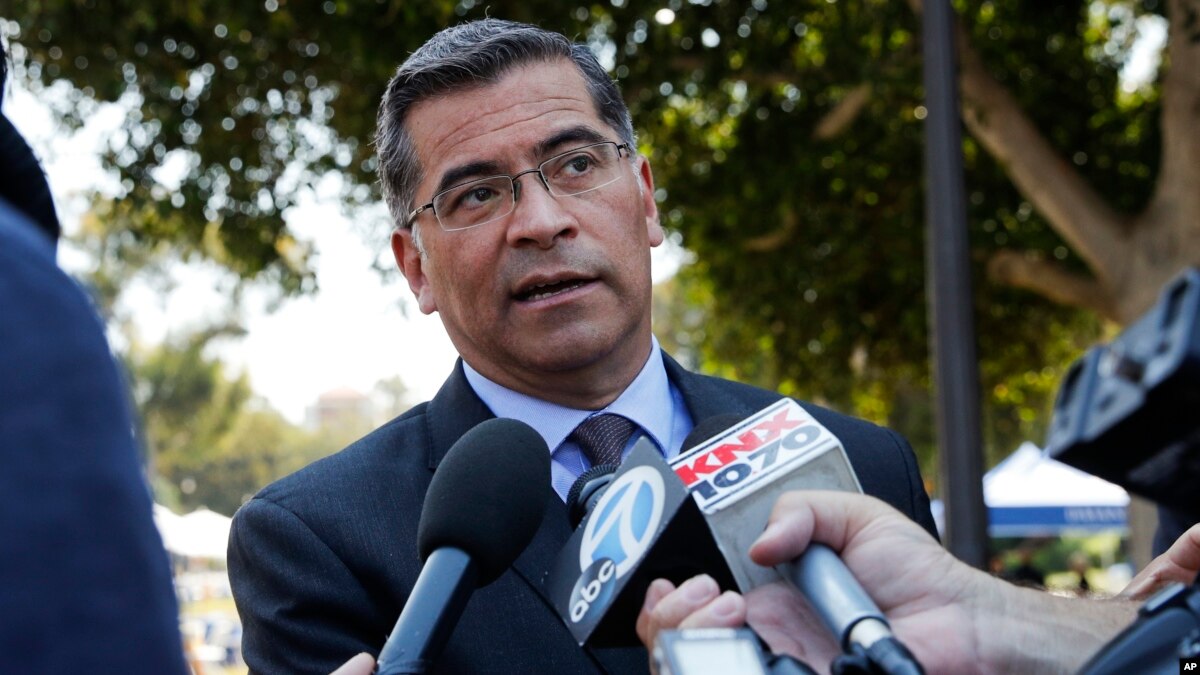
The state of California on Friday agreed not to enforce its own state net neutrality law until a final court decision on the Trump administration’s decision to overturn the 2015 Obama-era open internet rules.
The move likely means the California net neutrality law, which was set to take effect Jan. 1, now will be on hold for a year or longer. The law has been challenged by the U.S. Justice Department and trade groups representing providers including AT&T Inc., Verizon Communications Inc. and Comcast Corp.
Arguments set for February
A federal appeals court set oral arguments for Feb. 1 on the administration’s net neutrality reversal. California agreed it would not seek to enforce its law until that court’s decision and any potential review by the U.S. Supreme Court.
A federal judge Friday approved an agreement between California, the Justice Department and the trade groups to delay implementation and the legal challenges to the state law.
Federal Communications Commission Chairman Ajit Pai, who led the effort to overturn the Obama-era net neutrality rules, said in a statement California’s “substantial concession reflects the strength of the case made by the United States earlier this month. It also demonstrates ... there is no urgent problem that these regulations are needed to address.”
California Attorney General Xavier Becerra said the decision was “intended to put us in the best position to preserve net neutrality for the 40 million people of our state. We are fighting the Trump administration’s attempt to repeal net neutrality in the D.C. Circuit Court and we will vigorously defend California’s own net neutrality law.”
FCC action
In December, the FCC said in repealing the Obama-era rules that it was pre-empting states from setting their own rules governing internet access, an issue the federal appeals court is expected to address.
The FCC order reversed rules barring internet service providers from blocking or throttling traffic or offering paid fast lanes, also known as paid prioritization. A group of 22 states and the District of Columbia have sued to overturn the repeal.
The four trade associations that sued to block the law said California’s decision not to enforce the law “is a win for consumers that will allow continued innovation and investment while these deliberations continue.” The groups also filed suit last week against Vermont over a separate state net neutrality law.
Win for providers
The Trump administration rules were a win for internet providers but opposed by companies such as Facebook Inc., Amazon.com Inc. and Alphabet Inc.
The FCC handed sweeping powers to internet providers to recast how Americans use the internet — as long as they disclose any changes. The new rules took effect in June but major providers have made no changes in internet access.
U.S. Attorney General Jeff Sessions said in September in a statement that the “the California legislature has enacted an extreme and illegal state law attempting to frustrate federal policy.”
US official says Putin invited to visit Washington next year

U.S. National Security Adviser John Bolton says Russian President Vladimir Putin has been invited to visit Washington next year.
Bolton said on Friday in the ex-Soviet nation of Georgia: "We have invited President Putin to Washington after the first of the year for, basically, a full day of consultations."
He says no date has been set.
Bolton noted that Putin and U.S. President Donald Trump are set to meet in Paris when they attend November 11 events marking 100 years since Armistice Day.
Putin and Trump held a summit in Helsinki in July amid sharp differences over the Ukrainian crisis, the war in Syria and the allegations of Russian meddling in the U.S. 2016 presidential election.
Bomb Scares Inject Fear and Uncertainty into Midterm Campaign
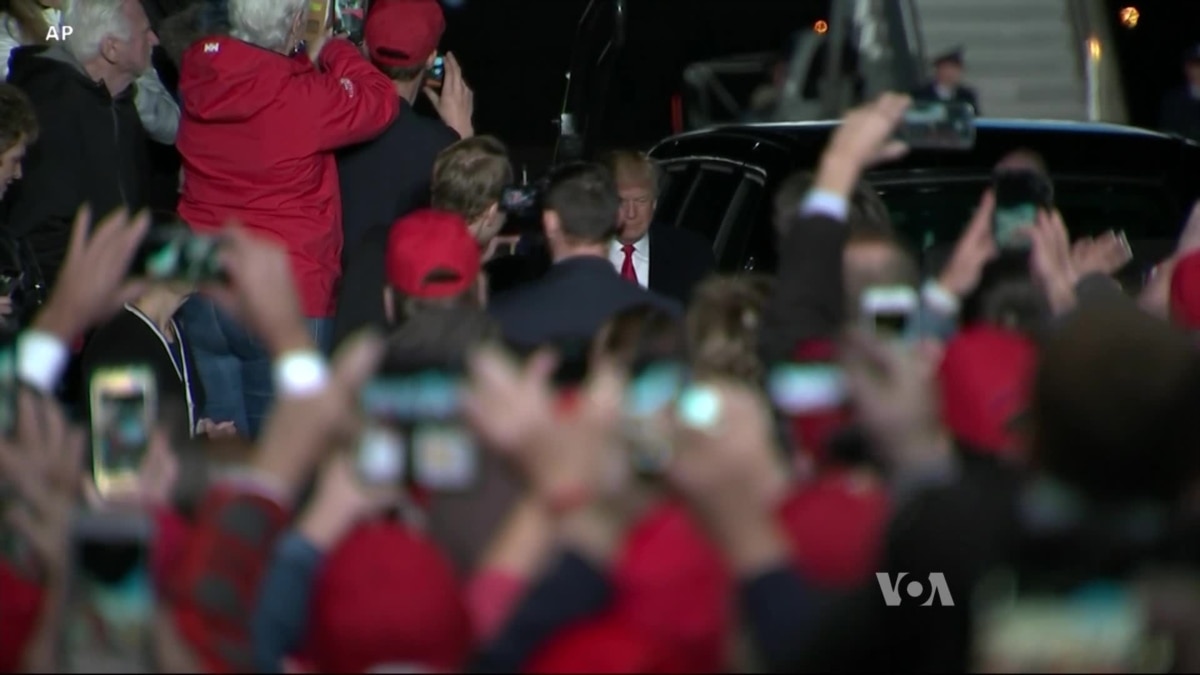
Less than two weeks before U.S. midterm elections, a new element of fear and uncertainty has been injected into the campaign in the wake of suspected pipe bombs that were sent to several prominent Democrats. That, in turn, has sparked a renewed focus on the sharp political rhetoric that has long shaped the current divisive atmosphere, with calls from both parties to temper the partisanship. VOA National correspondent Jim Malone has more from Washington.
Read More Bomb Scares Inject Fear and Uncertainty into Midterm Campaign : https://ift.tt/2OQIHUwThursday, October 25, 2018
Bomb Expert: Pipe Bomb Origins Are Easy to Detect

U.S. authorities are investigating a string of suspicious packages, containing suspected pipe bombs, addressed to prominent Democrats and other critics of the Trump administration. Two former presidents, vice president and presidential candidate have been targeted, as well as a movie star and a news network. President Donald Trump has condemned the packages as an attack on U.S. democracy and accused the news media of inciting anger. VOA's Zlatica Hoke reports that many blame Trump's rhetoric.
Read More Bomb Expert: Pipe Bomb Origins Are Easy to Detect : https://ift.tt/2EKYhw2Wednesday, October 24, 2018
Trump Calls for Unity, Blames Media Amid Bomb Threats
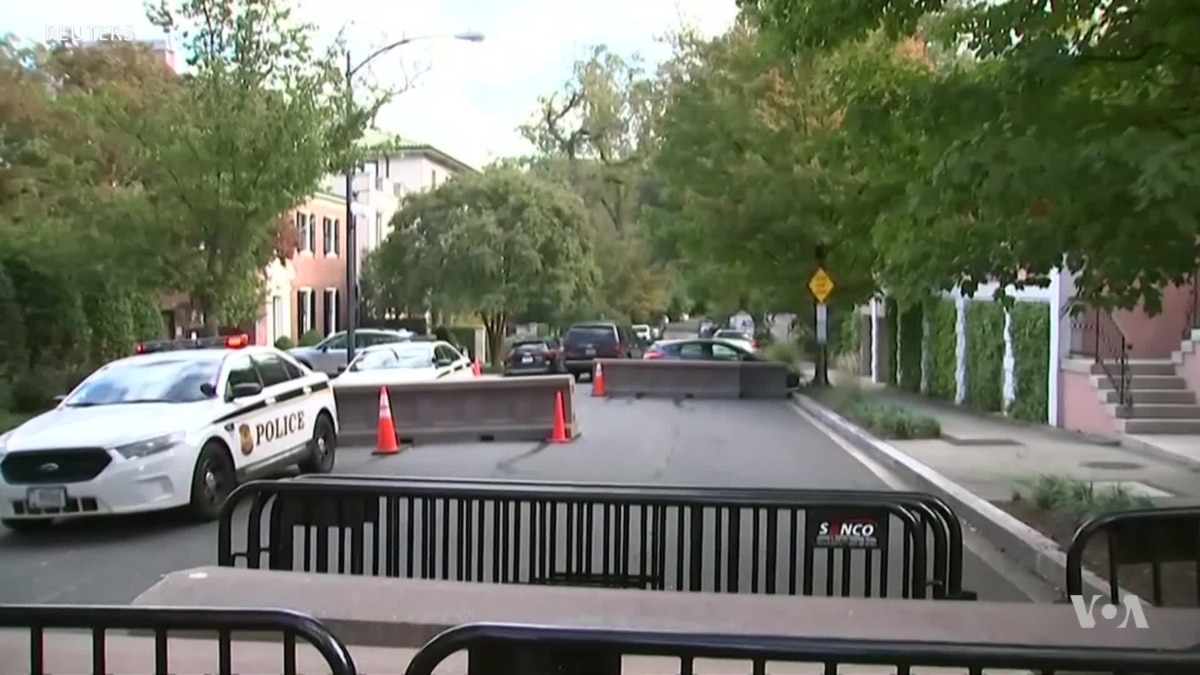
U.S. President Donald Trump said Wednesday that targeting current and former U.S. government officials with explosive devices is "despicable" and has no place in American politics. Suspicious packages were sent to former Secretary of State and Democratic presidential candidate Hillary Clinton, former President Barack Obama, and several other prominent Americans, as well as the New York headquarters of CNN. Mike O'Sullivan reports that Wednesday, Trump pointed to the media as part of the problem.
Read More Trump Calls for Unity, Blames Media Amid Bomb Threats : https://ift.tt/2qcDw2pABC Tries for a Head Start Over Rivals on Midterm Coverage
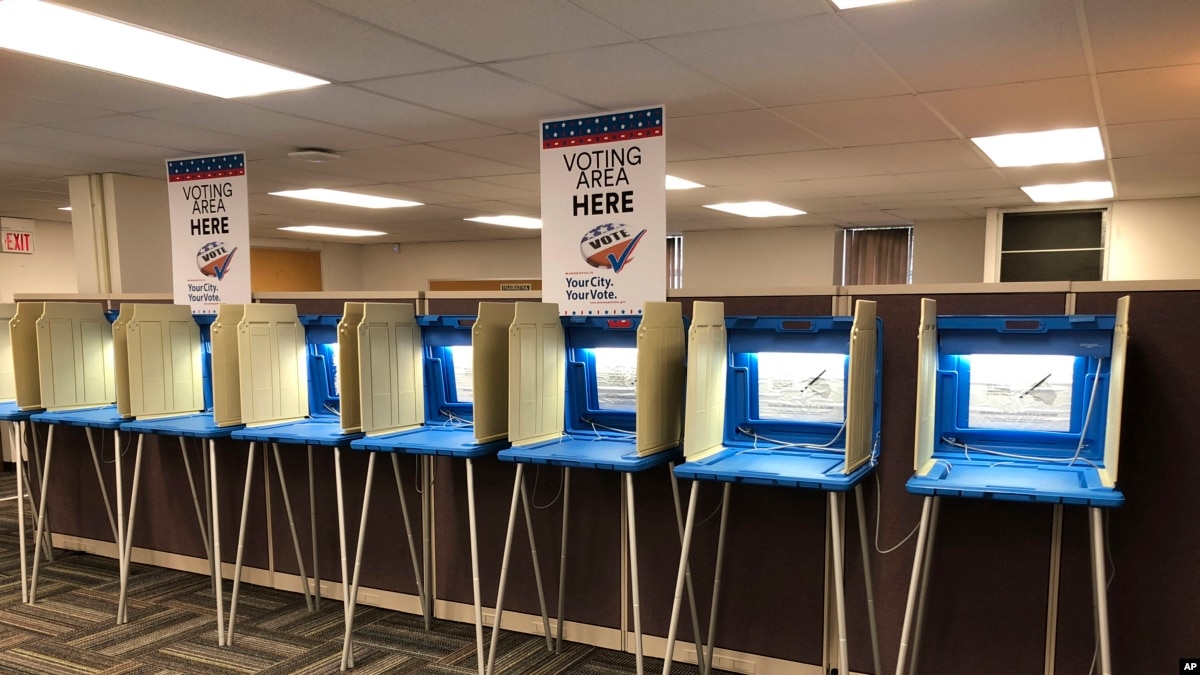
ABC News says that it is treating midterm election night coverage as if it were a presidential year, promising Wednesday to get a one-hour jump on its broadcast rivals by devoting the entire prime-time schedule on Nov. 6 to reporting results.
The network said its “Your Voice, Your Vote” show, anchored by George Stephanopoulos, will begin at 8 p.m. Eastern time and 7 p.m. Central. While cable news networks will undoubtedly be on the story all day, both CBS News and NBC News previously announced that their continuous election-night coverage would begin at 9 p.m.
“It’s something I’m thrilled about,” Stephanopoulos said. “I’ve never seen a midterm election that feels like this or could potentially be more consequential. This feels like a presidential election, in part because President Trump has made himself the center of the debate.”
Four years ago during the midterm election of President Barack Obama’s second term, ABC had only an hour of prime-time coverage starting at 10 p.m. Eastern.
Starting at 9 p.m. allows CBS and NBC the chance to air two of its most popular programs, “NCIS” and “The Voice.” ABC will be bumping “The Conners,” but the head start may give it an edge among viewers interested in the race. ABC News President James Goldston said local affiliates are onboard with the extra time.
“It’s something that our viewers have shown that they want,” Goldston said. “I’m hopeful that this will be the most complete coverage that we have ever done.”
ABC’s election night will include a larger role for Nate Silver and his FiveThirtyEight blog. That has the potential to raise unpleasant memories from 2016, when Silver and his competitors forecast a strong probability of Hillary Clinton’s election, and saw predictions turn upside down as the night went on.
Silver’s blog on Tuesday showed that Democrats had an 85.9 percent probability of winning the majority in the House of Representatives, roughly the same as what Clinton had two weeks out from the 2016 election. That race was more volatile throughout and tightened considerably in the final days; polls have shown more consistency this year, he said.
Still, Silver said, “I get a little bit nervous when people see 80 percent and round those numbers up.”
“In 2016, people kind of came in with the impression that Hillary is going to win and all the talk of probabilities was just hedging bets,” he said. “People who worked on television thought that, too.”
The lesson of 2016 must be communicated on election night, that 85 percent is not 100 percent and probabilities are not certainties, Stephanopoulos said.
“Everyone was shocked,” he said. “I think the Trump campaign was shocked by how it turned out. That’s one of the things we all learned — be ready to be surprised.”
ABC will keep close tabs on Silver’s projections, updated through the night. Changes will be based on results and not polling, Silver said.
Goldston said ABC will offer a true second-screen option, where viewers will be able to call up statistics on local races. Similarly, NBC is working with Facebook to highlight coverage from local NBC reporters from across the country on the races in their areas.
Goldston is also excited about ABC’s “augmented reality,” essentially state-of-the-art 3-D imaging bringing to life illustrations on control of Congress.
CBS News is expecting a long night for its morning crew: its four-person “CBS This Morning” anchor team will all join with evening news Jeff Glor in leading that network’s coverage. Lester Holt, Savannah Guthrie, Chuck Todd and Megyn Kelly will lead NBC News’ team.
Suddenly, that means Stephanopoulos is the most experienced hand leading network election night coverage.
“I’ve worked in a lot of campaigns and I’ve covered even more,” he said. “I’m going to bring all of that experience to bear on election night.”
Read More ABC Tries for a Head Start Over Rivals on Midterm Coverage : https://ift.tt/2yvlLQbAP-NORC/MTV Poll: Young People Back Single-Payer Health Care

Large majorities of young Americans want to see an expansion of government services, including a single-payer health care program, according to a new poll by The Associated Press-NORC Center for Public Affairs Research and MTV.
According to the poll, 69 percent of young Americans between the ages of 15 and 34 favor a national health plan, known as a single-payer program. Eighty-eight percent of young Democrats and 40 percent of young Republicans favor a government-run health insurance program, according to the poll. Roughly two-thirds of young independents are in favor.
Young Americans called health care a very important issue in deciding how to vote. Sixty-two percent of those who will be old enough to vote in the midterms rated it as such. That's the most who said the same of any issue in the poll, including immigration and the economy.
Thirty-three-year-old Jasmine Miller, of Detroit, said that she pays $800 a month for health insurance to cover herself and her son. Miller, who describes herself as a humanitarian, said that health care is among the issues she cares about most.
"It should be a universal standard for health care," said Miller, who prefers Democrats. "If we do have to pay deductibles, at least let our premiums be lower."
Christopher Edwards, 28, of Columbia, Missouri, said health care was among the most important issues for him as he looks ahead to the midterms.
"People sometimes get sick, and sometimes medicine is what they need," said Edwards, who described himself as a moderate Democrat.
Majorities of young Americans also favor other types of expansion of government service, including free public college and trade school. Sixty-six percent of young Americans say they support free public college tuition. Seventy-nine percent of young Democrats and 39 percent of young Republicans are in favor. Among independents, 72 percent said they supported free tuition.
Younger people typically do not turn out for midterm elections in great numbers. According to the new poll, more than half of young voters say voting in the upcoming midterms is very important, but just 32 percent of those who will be old enough say they're certain to cast a ballot.
Jannette Ramirez, 27, of Winter Haven, Florida, said she would "probably" vote in November's elections, but she was unsure how much impact her vote would have.
"I can vote all day long, every day, 30 times a day and still my opinion wouldn't matter," said Ramirez, who described herself as a political moderate.
Liberal Democrats are more excited than other young people about participating in the political process, according to the poll. Seventy-six percent said they are reading and watching news about November's elections, compared with 58 percent of young Americans overall.
Similarly, 71 percent of liberal young Democrats called voting in the midterms very important, compared with 54 percent of young Americans overall.
Miller, who is a tax preparer, said while she will absolutely vote in November's election, she's frustrated by the tone of politics today.
"It's more like a big high school argument," she said.
The AP-NORC and MTV poll of 1,052 young Americans age 15-34 was conducted September 20 to October 8, 2018. The poll was conducted using NORC's probability-based AmeriSpeak panel, designed to be representative of the U.S. population. The margin of sampling error for all respondents is plus or minus 4.3 percentage points.
Read More AP-NORC/MTV Poll: Young People Back Single-Payer Health Care : https://ift.tt/2Pm2SJhSuspected Explosive Device Found Near Home of Clintons
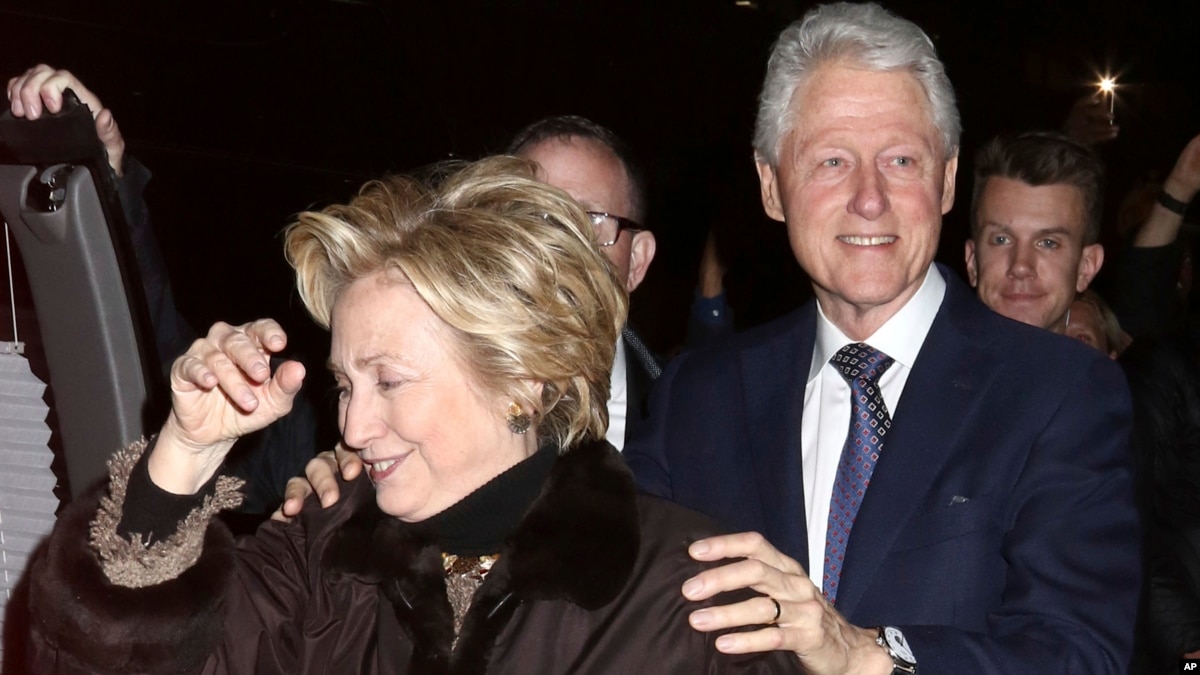
U.S. media reports say a suspected explosive device has been found near the home of Bill and Hillary Clinton in a New York suburb.
The New York Times is reporting the device found at the home of the former U.S. president and ex-secretary of state is similar to the one that was placed in a mail box outside the home of philanthropist George Soros earlier this week.
Details are still coming in.
Tuesday, October 23, 2018
US Lawmaker Vows to Work Toward New Trump Tax Cut
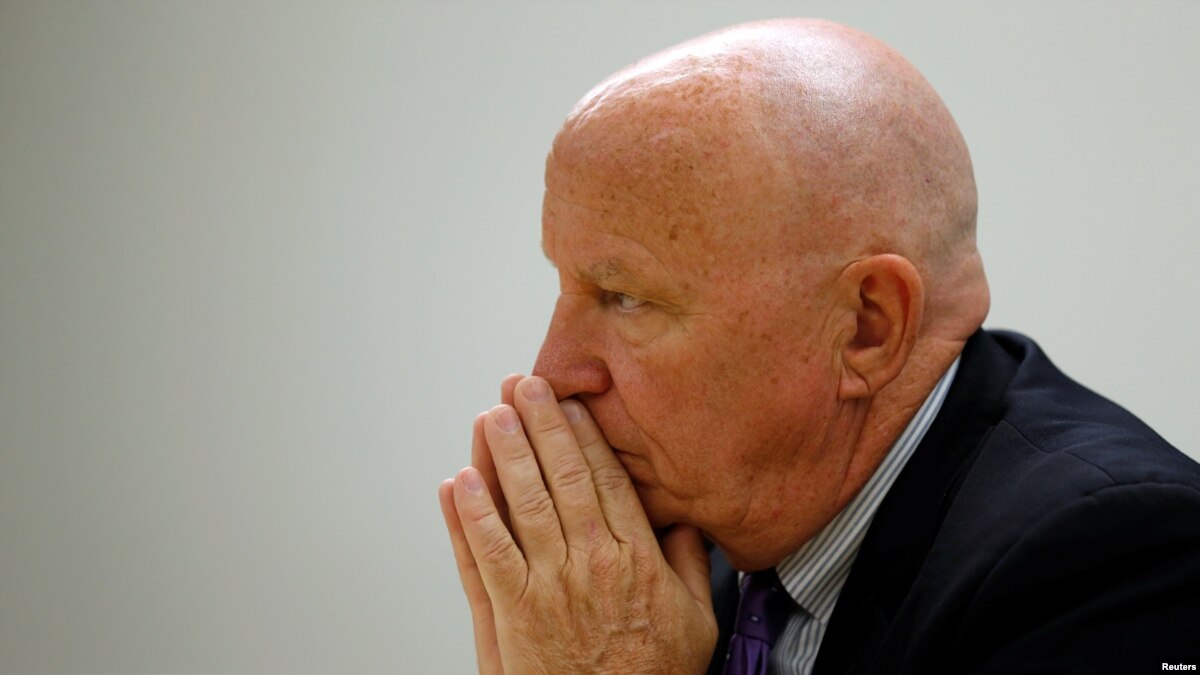
The top Republican lawmaker on tax policy in the U.S. House of Representatives said Tuesday that he was working with the White House and Treasury to develop a new 10 percent middle-class tax cut plan that
President Donald Trump began touting over the weekend.
Rep. Kevin Brady of Texas, who chairs the tax-writing House
Ways and Means Committee, said the plan would be crafted in "coming weeks" and would advance in Congress if Republicans retained control of the House and Senate in midterm elections on Nov. 6.
"President Trump believes American families deserve to keep more of what they work so hard to earn. We agree," Brady said in a statement.
In what is widely seen by lobbyists as the latest Republican campaign message on taxes, Trump told reporters on Tuesday at the White House that the plan would emerge soon.
"This will be on top of the tax reduction that the middle class has already gotten. And we're putting in a resolution, probably this week," the president said.
Surprised
Trump's comments came a day after congressional and administrative staff appeared to be caught off guard by word of a new tax cut, which surfaced on Saturday.
The White House on Tuesday described the new tax cut as an agenda item for 2019 and suggested it could be offset by cuts in spending.
Republicans are in a pitched battle to retain control of the House and Senate against an energized Democratic voting base that has made contests competitive even in some Republican strongholds.
"What President Trump is doing on the [campaign] trail is he's just describing what he wants to be in the tax bill that moves next year," Trump economic adviser Kevin Hassett told MSNBC on Tuesday. "You could expect in our budget, and also in our approach to legislation next year, that we're going to be pursuing a big reduction in government spending."
Trump signed steep tax cuts for businesses and individuals into law last December as part of a sprawling Republican tax overhaul. Stung by criticism that their tax plan shortchanged families by having individual tax cuts expire after 2025, House Republicans voted last month to make the individual cuts
permanent in a legislative package dubbed "Tax Reform 2.0."
"Because of the fact that the economy is doing so well, we feel like we can give up some more. I couldn't have gotten that extra 10 percent when we originally passed the [tax] plan. We maxed out," Trump said.
Obama Rails Against Republicans, Rallies Democrats in Nevada

Former President Barack Obama delivered a biting critique of Republicans in Washington and President Donald Trump’s administration on Monday but avoided mentioning his successor by name.
Obama, speaking at a rally in Las Vegas for Nevada Democrats, said Republicans had promised to “fight for the little guy” but instead helped corporations and sowed divisions in America.
Republicans in Congress “bend over backwards” instead of being “a check or a balance on this kind of corrupt politics,” the former president said.
Obama was in Nevada to drum up support for Democratic Rep. Jacky Rosen, who is in a tight race against incumbent Republican Sen. Dean Heller, and energize voters in the swing state who delivered big for Democrats in 2016 but stayed home during the midterm elections in 2014.
Obama, who won the state in 2008 and 2012, railed against the GOP tax law, efforts to repeal his Affordable Care Act, Trump’s attacks on the media, political pressure he’s put on U.S. Attorney General Jeff Sessions and the separation of immigrant families at the U.S.-Mexico border.
Obama also criticized Heller, saying, “the current senator, he doesn’t seem to be willing to stand up to this. He just goes along, even when you get a sense he knows it’s not right.”
Rosen, a first-term congresswoman, is seen as one of Democrats’ best opportunities to flip control of a Senate seat, though the party faces slim chances of taking control of the Senate.
She narrowly won election to her Las Vegas-area district in 2014 and is taking on a politician who not only has already won a statewide election but has never lost an election despite serving nearly three decades in public offices.
Democrats are also in a close battle for the governor’s office, which will oversee state and federal redistricting occurring after the 2020 census.
Obama’s rally included specific appeals to young people and Latinos, key demographics who can boost Democrat numbers if they participate. The rally at a University of Nevada, Las Vegas arena included performances from hip-hop group Salt-N-Pepa and Columbian reggaeton star J Balvin and a speech from actress America Ferrera.
Obama said not voting this November would be “profoundly dangerous to this country, to our democracy.” He also reminded the crowd that the 2011 killing of Osama bin Laden occurred under his watch and that the economic recovery that Trump often takes credit for started during his administration.
“When you hear all this talk about economic miracles right now, remember who started it,” Obama said.
Obama also touted the campaigns of Nevada gubernatorial candidate Steve Sisolak and U.S. House candidates Susie Lee and Steven Horsford.
Though Obama used his speech to say Republicans are rolling back the progress his administration made, the GOP on Monday responded with an identical criticism of Obama and Democrats.
Keelie Broom, a spokeswoman for the Republican National Committee, said “Nevada saw some of its darkest days as a result of relentless government overreach advanced by the Obama administration.”
“We’ve made incredible strides thanks to President Trump and our GOP-led Congress, and it’s insulting for Barack Obama to come out here and try to rally support for candidates like Jacky Rosen, Steve Sisolak, Susie Lee and Steven Horsford who will work to systematically dismantle the policies generating all of this progress.”
The event followed visits over the weekend by his former Vice President Joe Biden, who rallied with Democrats outside a union hall in Las Vegas, and a rally in the rural town of Elko by President Donald Trump.
The former president has generally kept a low profile since leaving office and has been selective about campaigning for Democrats in this year’s midterm elections.
Obama endorsed candidates up and down the ballot around the country, but in September, he broke with the traditional deference that past presidents show successors and gave a sharp critique of Trump.
In subsequent appearances for Democrats in California, Ohio and Pennsylvania, he avoided a similar reproach and instead focused on urging people to vote.
Read More Obama Rails Against Republicans, Rallies Democrats in Nevada : https://ift.tt/2JeRjOCObama to Campaign for Michigan Democrats on Friday
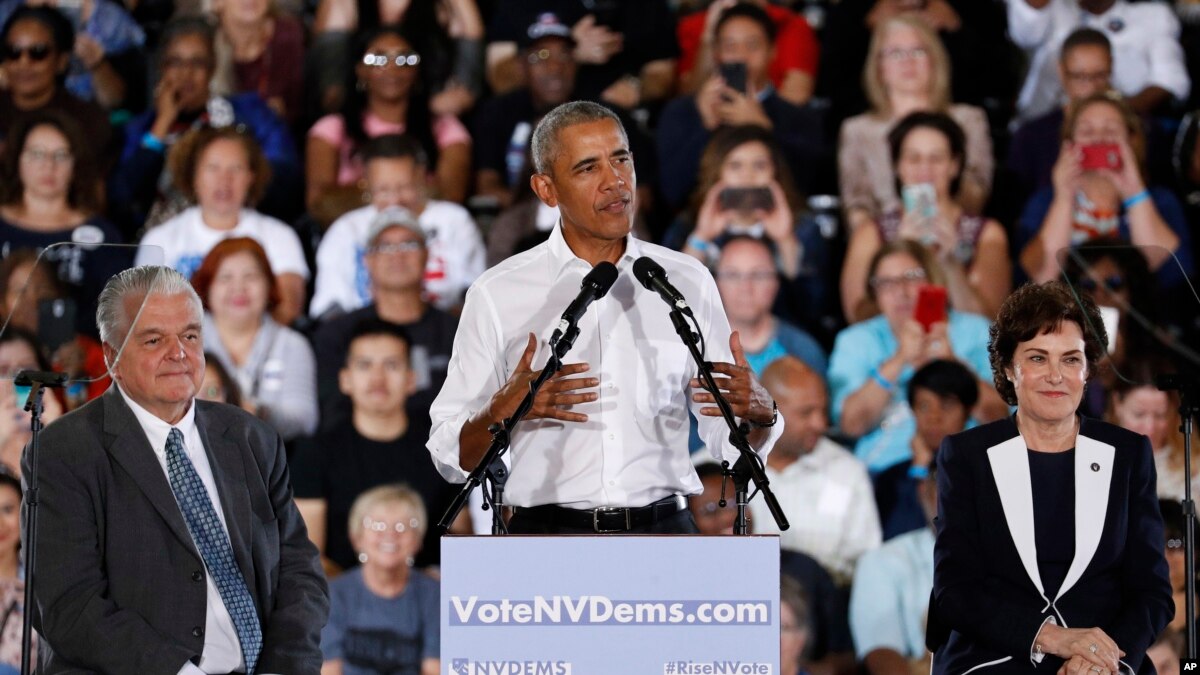
Former President Barack Obama will campaign for Democrats in Michigan.
Obama will headline a rally in Detroit Friday for Sen. Debbie Stabenow, gubernatorial candidate Gretchen Whitmer, U.S. House candidates and others 11 days before the election.
Former U.S. Attorney General Eric Holder will also attend. He leads a national Democratic group that is backing Michigan's anti-gerrymandering ballot proposal to put redistricting in the hands of a commission instead of lawmakers.
Obama's rally was announced Tuesday. It will be held at Cass Technical High School starting after 5 p.m.
Vermont Sen. Bernie Sanders rallied with top Democrats in Ann Arbor last week, while Donald Trump Jr. campaigned with Republicans in Pontiac. The president's daughter-in-law, Lara Trump, was in Michigan Tuesday supporting gubernatorial candidate Bill Schuette and Senate candidate John James.
Trump Escalates Immigration Rhetoric at Rally to Boost Cruz
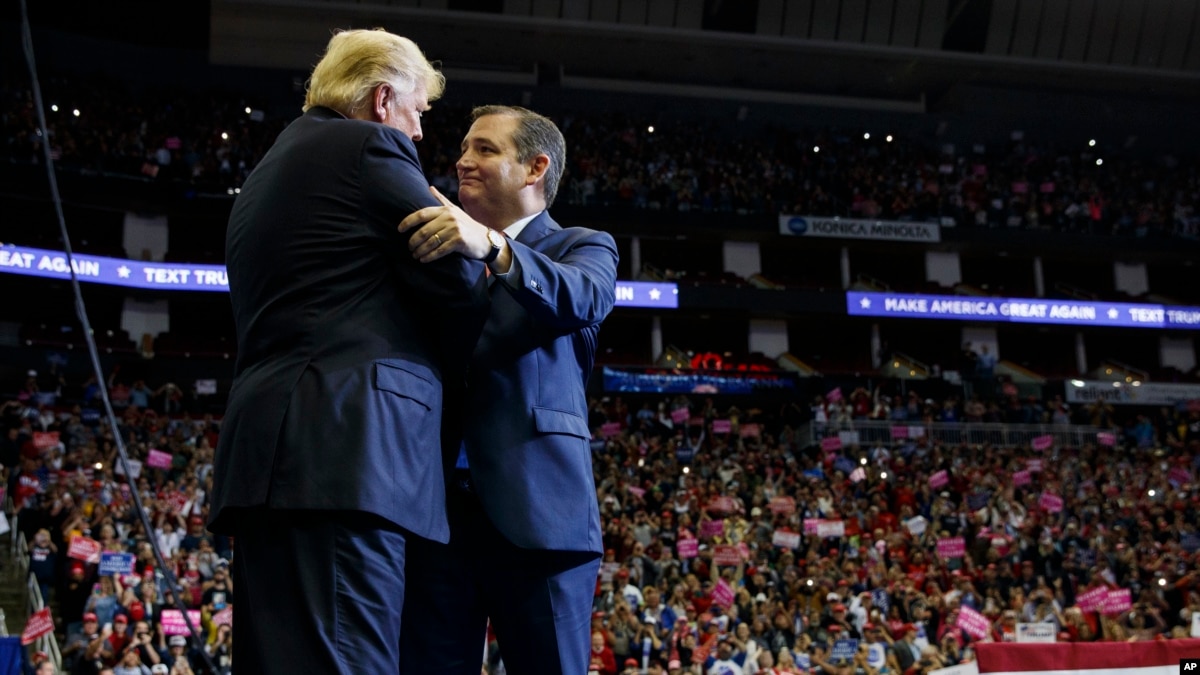
President Donald Trump escalated his immigration rhetoric at a midterm rally in Texas, falsely accusing Democrats of “encouraging millions of illegal aliens to break our laws, violate our borders and overwhelm our nation.”
With weeks to go before Election Day, Trump is seeking to drive Republican turnout with his hardline immigration policies. He cast the November choice in stark terms before the Houston rally for Republican Sen. Ted Cruz on Monday night, saying Democrats “have launched an assault on the sovereignty of our country.”
Trump spoke before a massive crowd on behalf of his former foe, who faces a strong challenge from Democratic Rep. Beto O'Rourke. When the two competed in the 2016 Republican presidential primary, Trump would frequently deride his rival as “Lyin' Ted” but said in Texas that their relationship had come a long way.
“Nobody has helped me more with your tax cut, with your regulation,” Trump said, also attacking O'Rourke, as a “stone-cold phony.
With the midterms drawing near, Trump has emphasized immigration, targeting a migrant caravan heading to the U.S. southern border. The president's focus on immigration politics comes as he seeks to counter Democratic enthusiasm in November. Trump believes that his campaign pledges, including his much vaunted — and still-unfulfilled — promise to quickly build a U.S.-Mexico border wall, are still rallying cries.
Trump is betting that his latest focus will further erode the enthusiasm gap that began to close during the debate over Brett Kavanaugh, Trump's nominee for the Supreme Court. But the approach offers both risks and rewards.
The hardline rhetoric may be popular among the red-state rural Republicans who will play an outsized role in the top Senate contests. But it may further alienate the moderate Republicans and women in the overwhelmingly suburban races that will decide the House majority — including several in Texas, California and Florida that feature large Hispanic populations.
On Monday night, Trump called the caravan an “assault on our country” and suggested, without citing evidence, that “Democrats had something to do with it.” He added: “We need a wall built fast.”
Earlier Monday, Trump said the U.S. will begin “cutting off, or substantially reducing” aid to three Central American nations because of the caravan.
In Texas, an enthusiastic crowd packed into Houston's Toyota Center, wearing red Make America Great Again hats and waving signs, including some with the president's new catchphrase, “Jobs vs. Mobs.”
Speaking before Trump took the stage, Cruz made clear that their conflict was behind them and that the two were working together. His biggest applause came when he predicted that “in 2020, Donald Trump will be overwhelmingly re-elected.”
A series of elected state officials were among the warmup speakers, as well as Trump's daughter-in-law Lara Trump and son Eric Trump, who told the audience that “we are driving the Democrats absolutely nuts.”
Trump gleefully used his latest attack line against Democrats, saying, “Democrats produce mobs, Republicans produce jobs.” He declared Democrats would be a “big risk to the American family,” and went after some of his favorite targets, including Democratic House Minority Leader Nancy Pelosi, California Rep. Maxine Waters, New Jersey Sen. Cory Booker and Massachusetts Sen. Elizabeth Warren.
The president stressed tax cuts, the strong economy and the hurricane response in the state. He repeated his pledge for a new middle-income tax cut of about 10 percent, though he offered few details on the plan. Trump said they would be “putting it in” next week, though Congress is not in session.
Trump also criticized so-called globalists, declaring, “You know what I am? I'm a nationalist.”
Trump's Texas stop is part of a campaign blitz that is expected to last until Election Day.
Although political relationships tend to be fluid, Trump's appearance for Cruz is notable, given that the two were bitter enemies during the 2016 primaries. After Trump insulted Cruz's wife and father, and Cruz refused to endorse Trump at the Republican National Convention, it was far from clear that the two would ever put it all behind them.
But they started rebuilding in the closing days of the campaign and have worked together since Trump took the White House.
The White House views Cruz as a loyal vote for his agenda. Trump promised he would come to Texas after the Senate race grew closer than expected, with O'Rourke out-fundraising Cruz and drawing large and enthusiastic crowds around the state. Cruz, who is leading O'Rourke in the polls, said over the summer that he would welcome Trump's support, though he has brushed off any suggestion he'd need Trump to win.
During the 2016 Republican primary, Trump assailed Cruz as a liar and “dishonest politician,” insulted his wife's appearance and promoted unsubstantiated claims that Cruz's father had links to President John F. Kennedy's assassin, Lee Harvey Oswald.
Trump on Monday did not voice any second thoughts about labeling Cruz the son of a presidential killer, telling reporters, “I don't regret anything.”
Cruz gave back as good as he got in 2016. He savaged Trump as a “pathological liar,” an “amoral bully” and a “sniveling coward.” After Cruz lost the primary, he gave a speech at the Republican National Convention in which he did not endorse Trump and instead called on Republicans to “vote your conscience,” drawing boos from the crowd. But he announced his support about a month before Election Day — and won points in Trump's camp for not withdrawing after the “Access Hollywood” tape was released in which Trump bragged about groping women.
Read More Trump Escalates Immigration Rhetoric at Rally to Boost Cruz : https://ift.tt/2AosFs4Search
Featured Post
Politics - The Boston Globe
unitedstatepolitics.blogspot.com Adblock test (Why?) "politic" - Google News February 01, 2024 at 03:47AM https://ift.tt...
/cloudfront-us-east-1.images.arcpublishing.com/bostonglobe/VNG7YMZTRWJ5WBFTJ5NVETPCQI.jpg)
Postingan Populer
-
unitedstatepolitics.blogspot.com The president diverges from both Donald Trump and Barack Obama with a complex vision of coalition-building...
-
unitedstatepolitics.blogspot.com What happens after the electoral college meets? Alright, so the (other) big vote happens tomorrow. Then w...
-
unitedstatepolitics.blogspot.com The latest US employment data , released on Thursday, showed that a marked recovery in the labour market c...